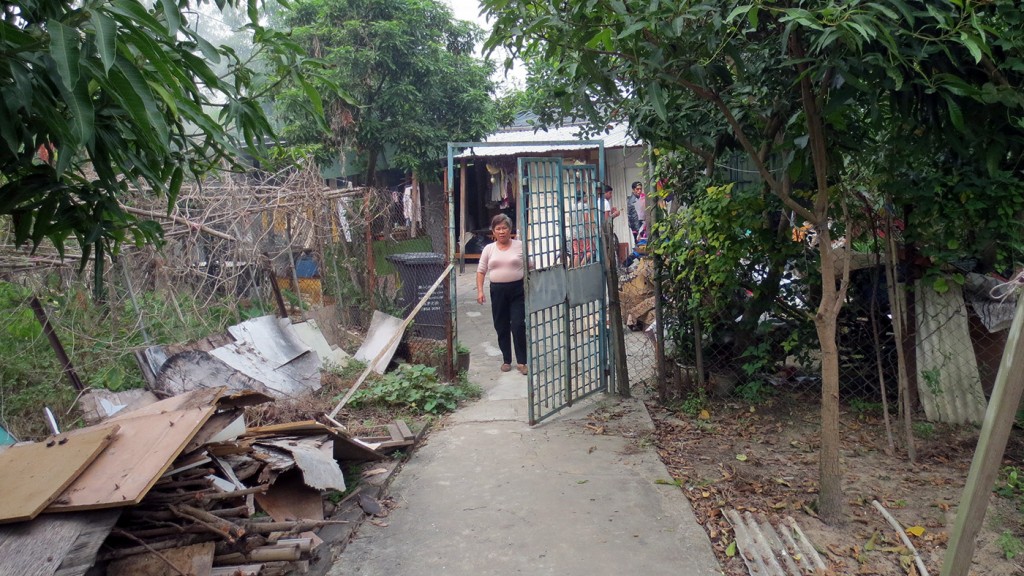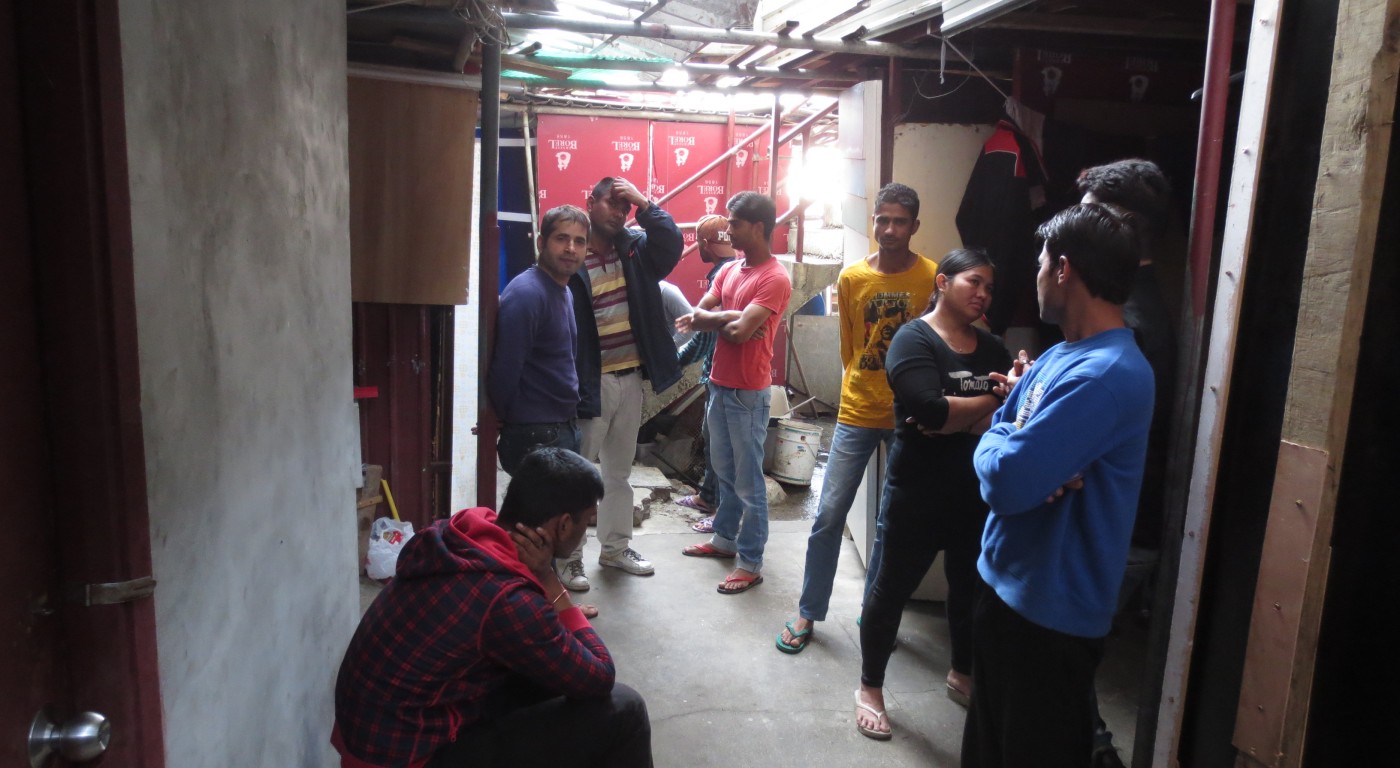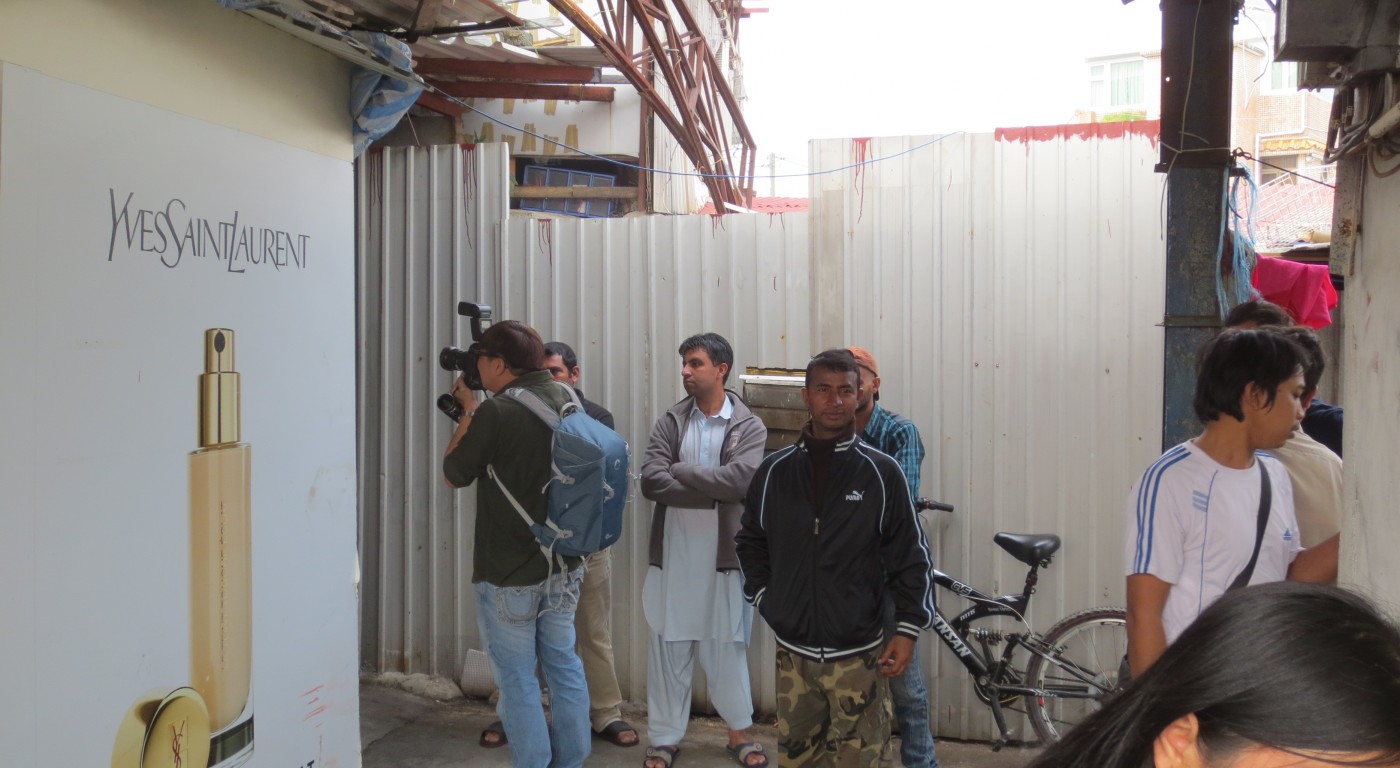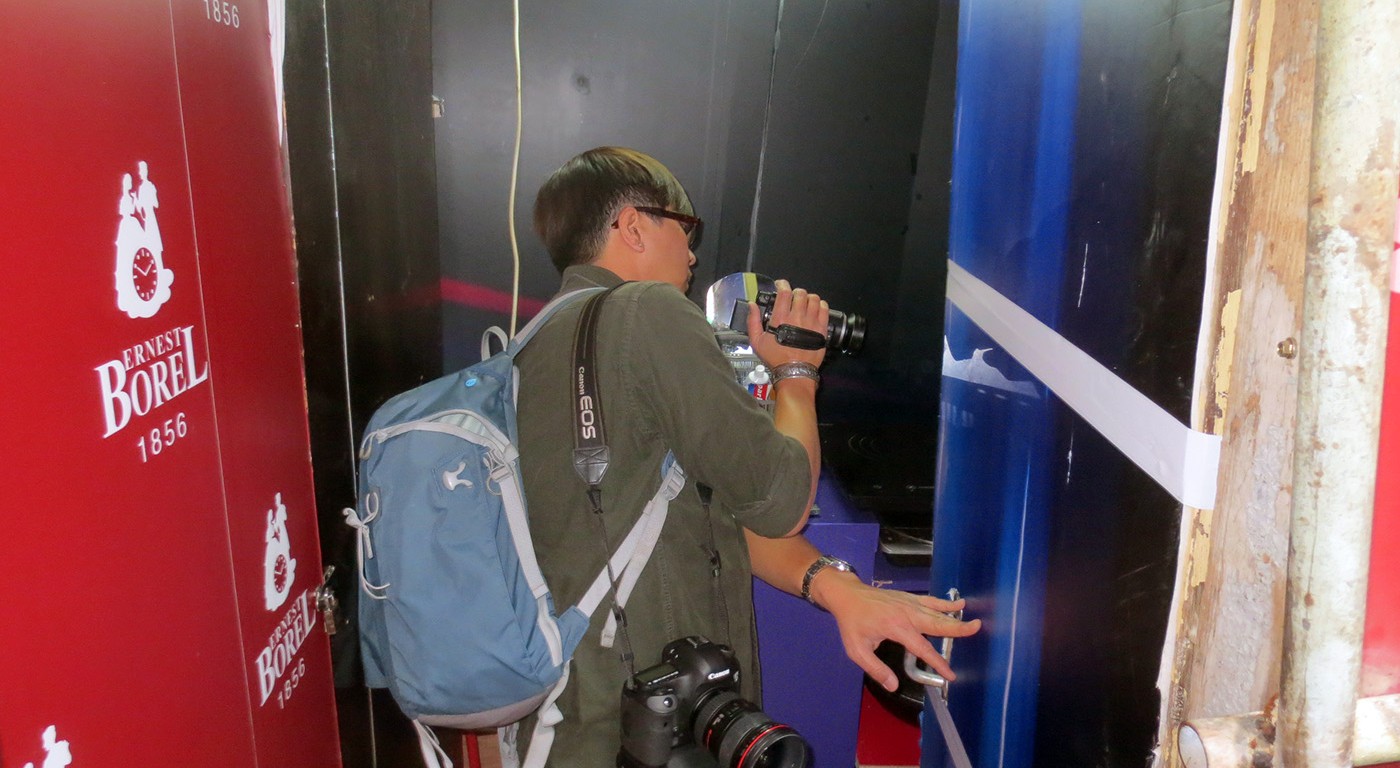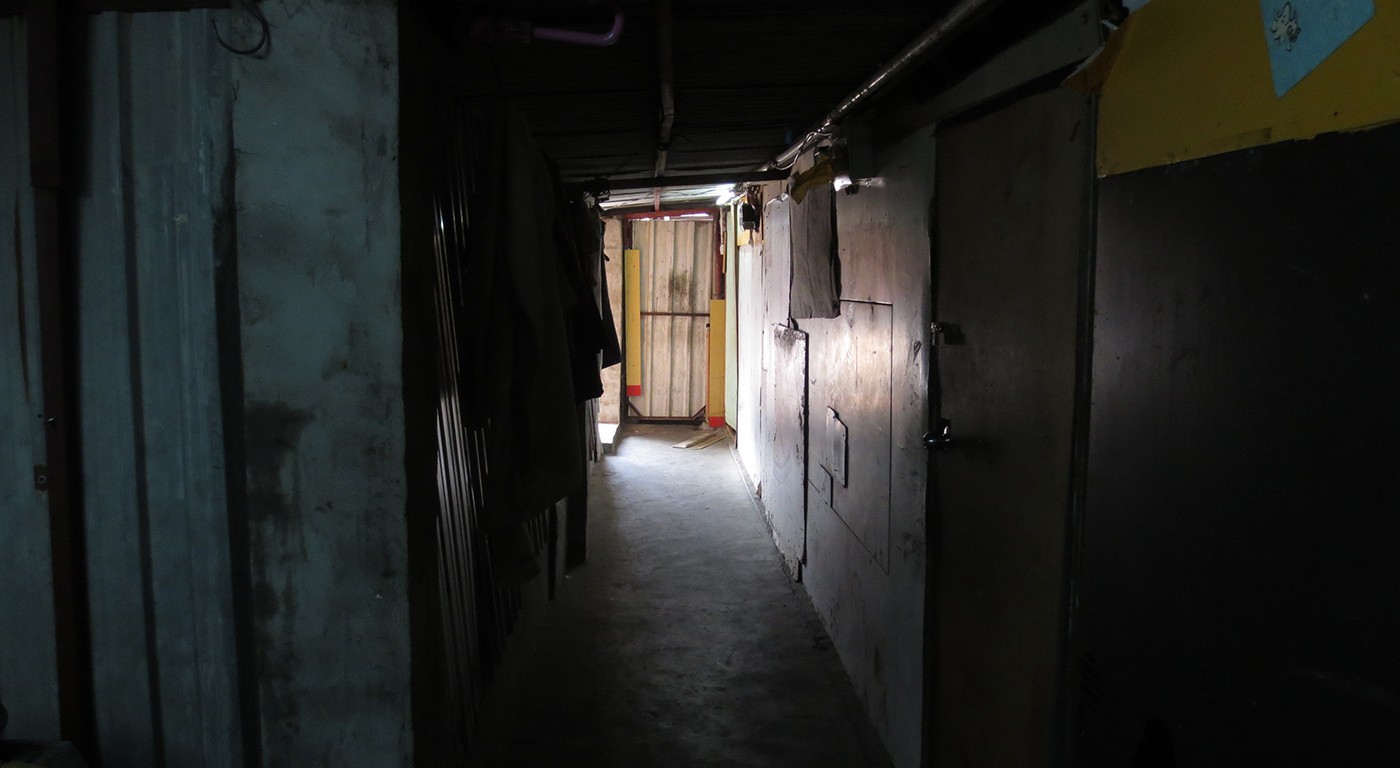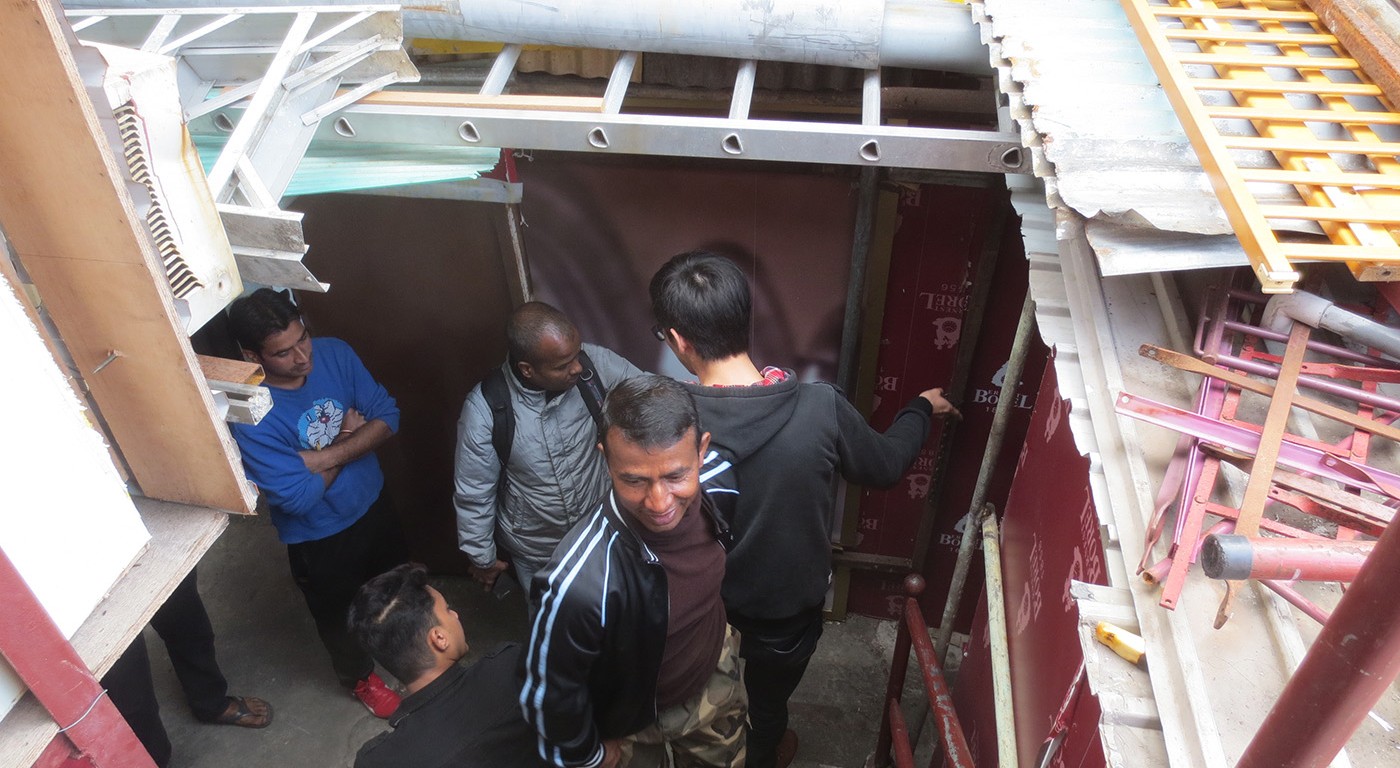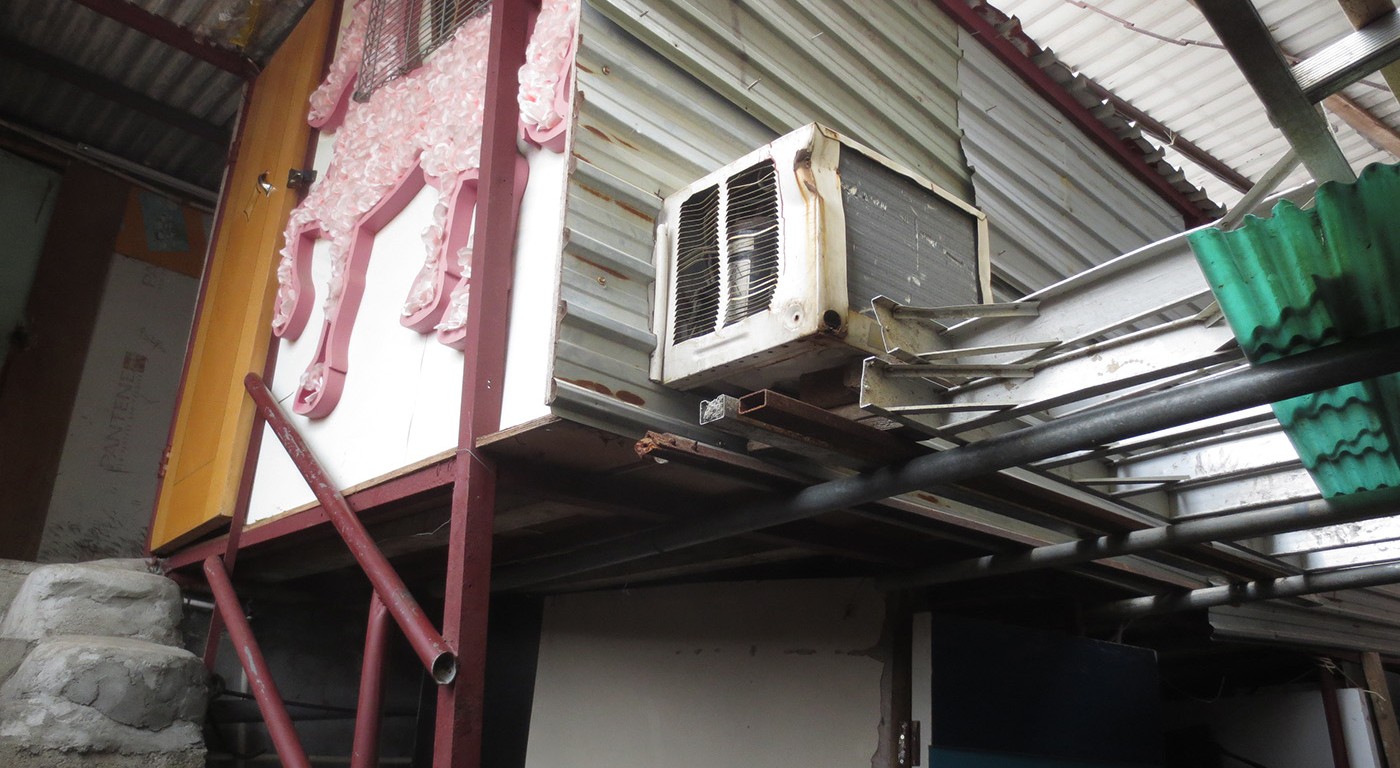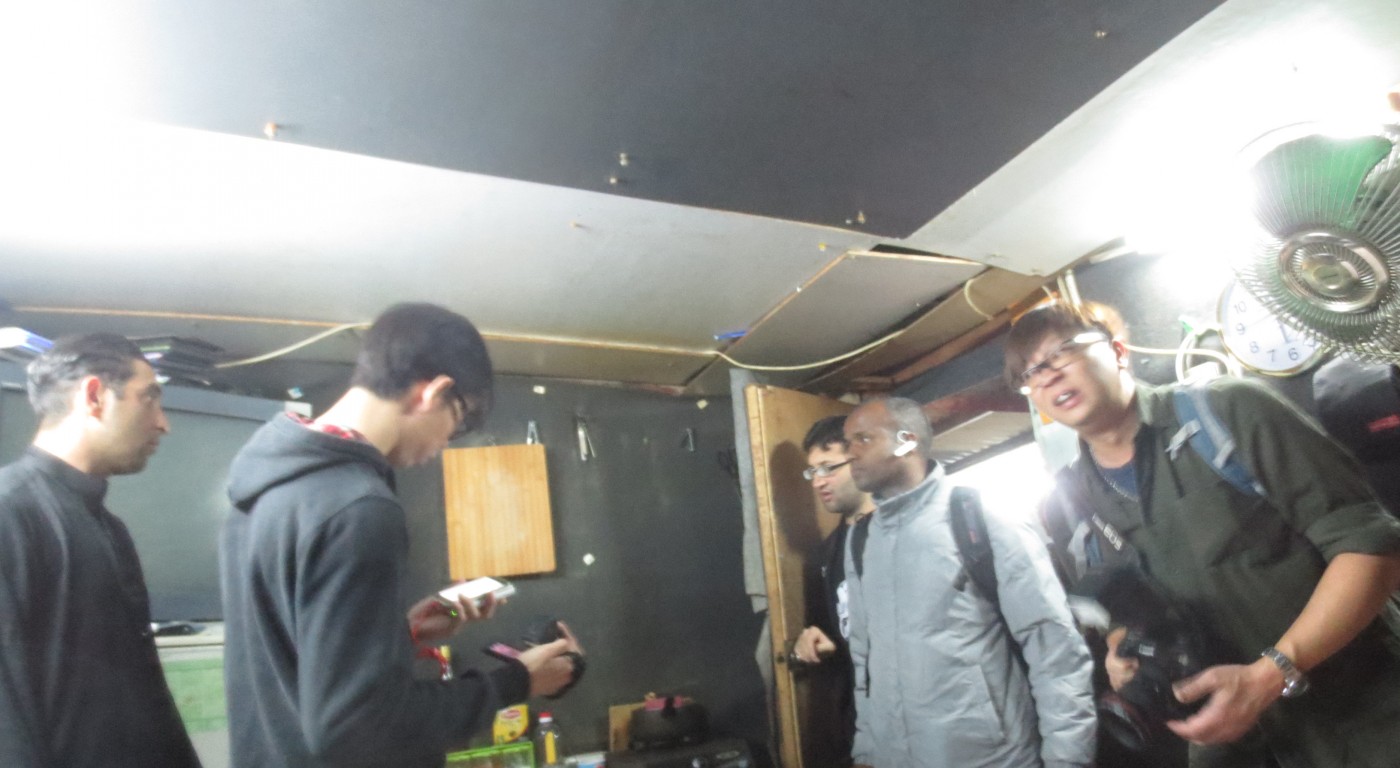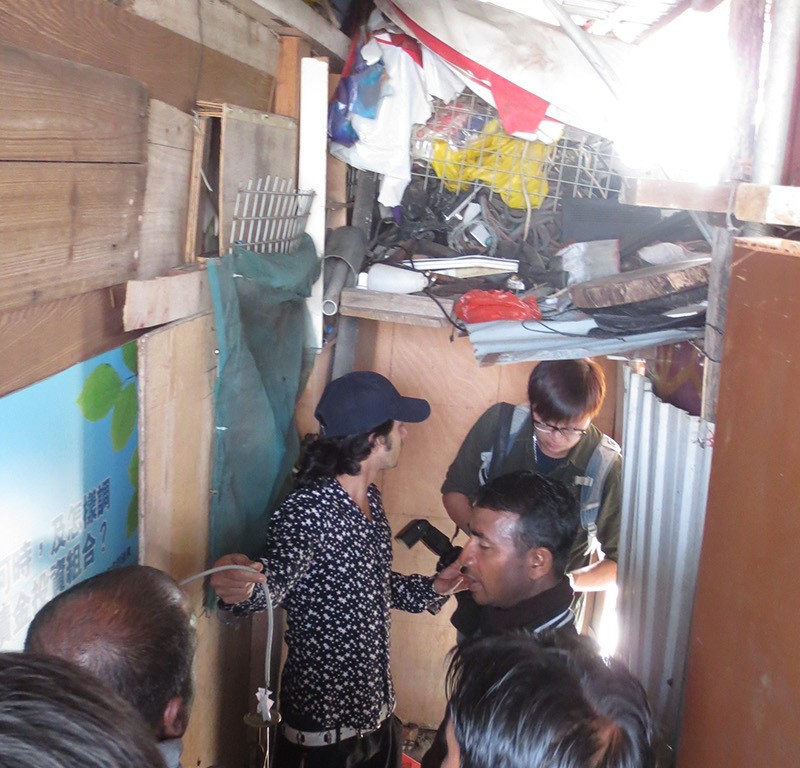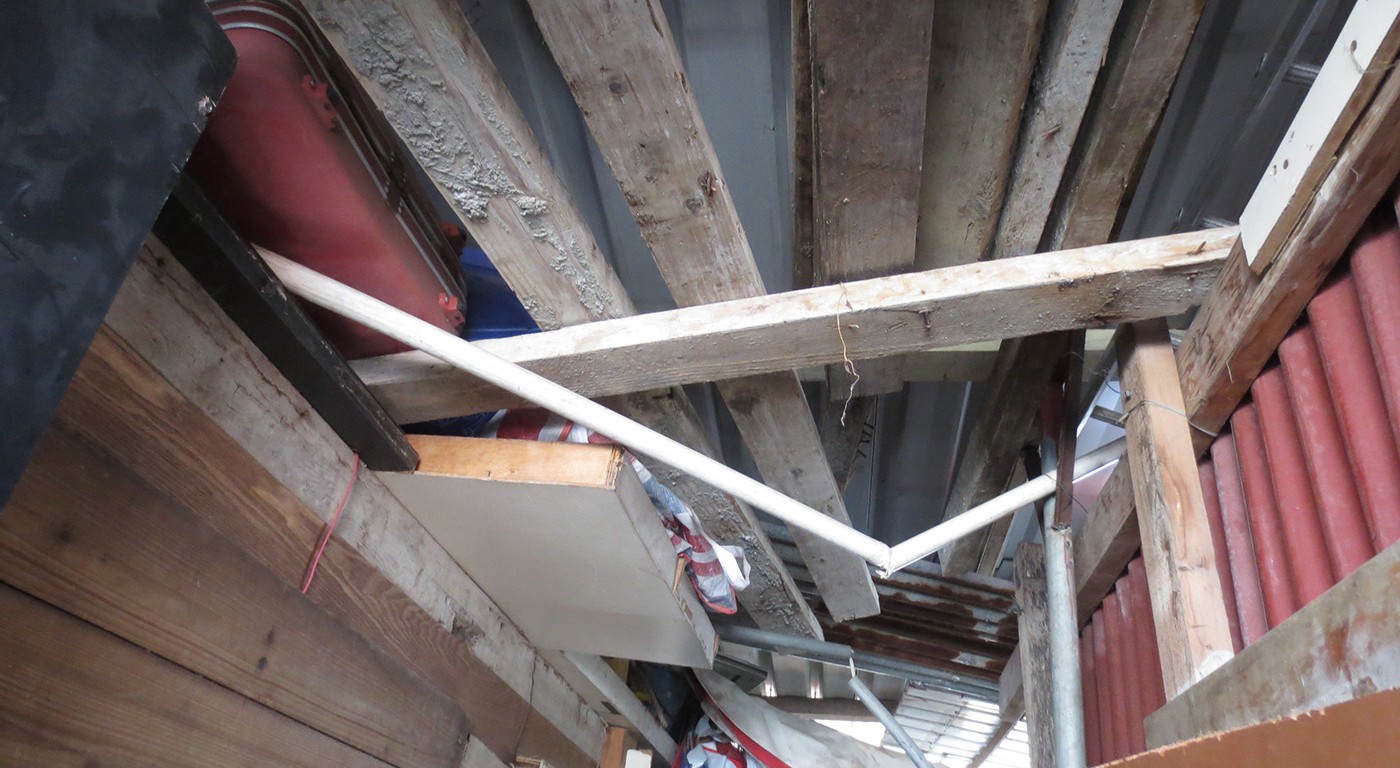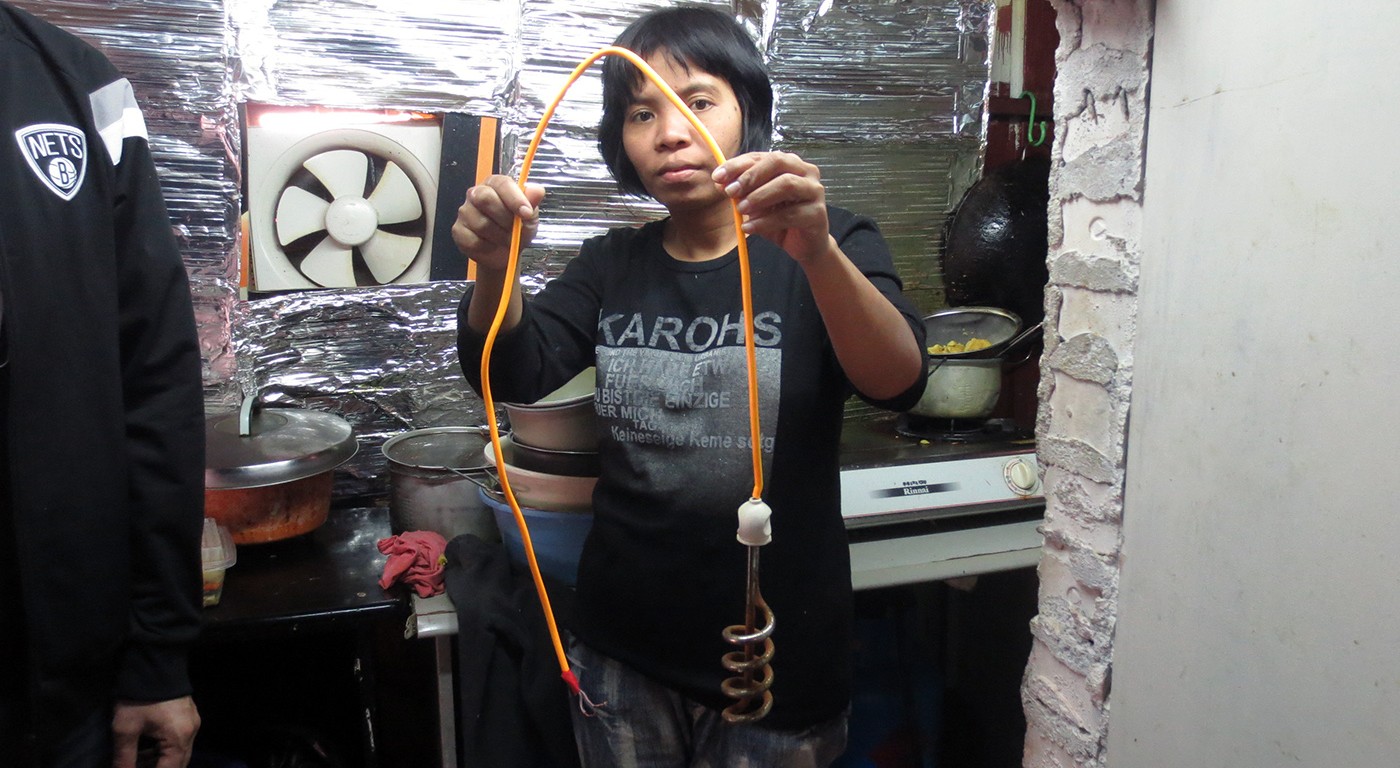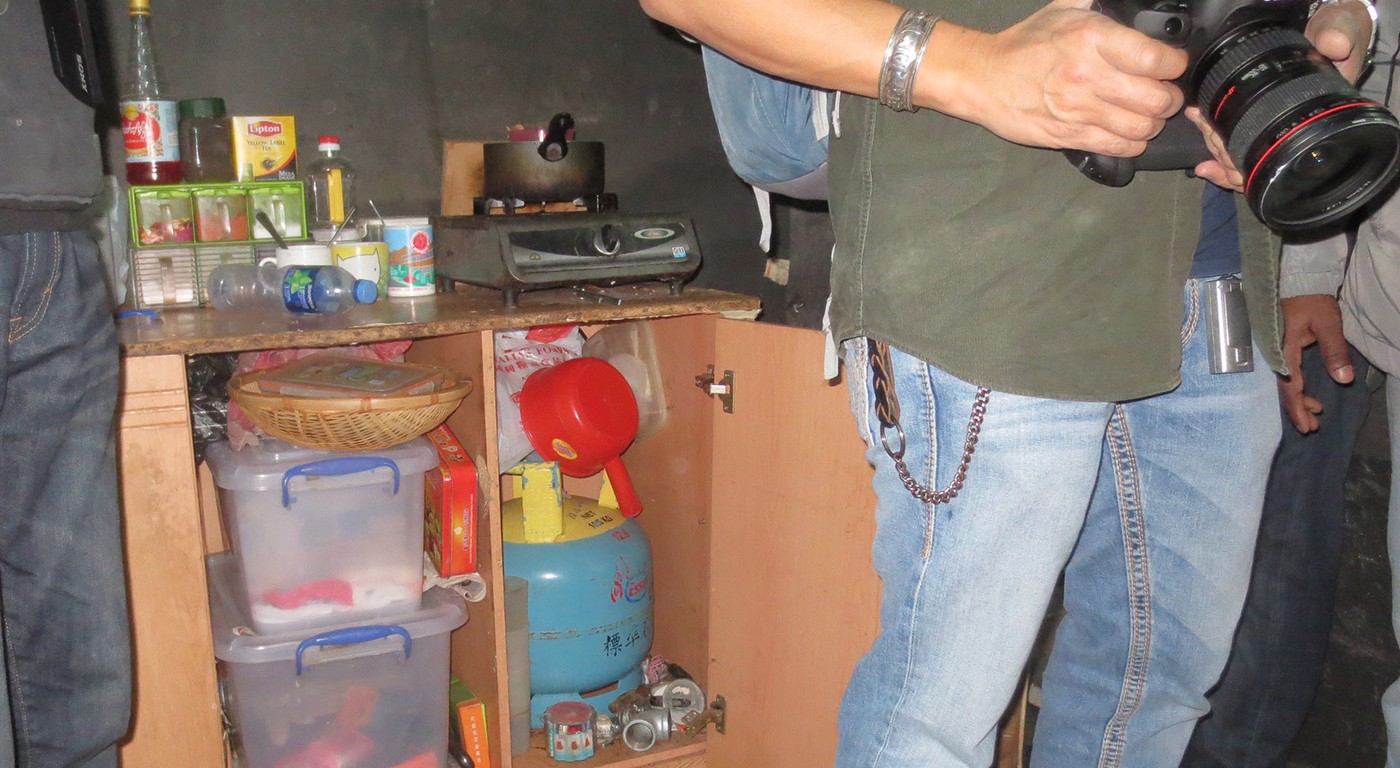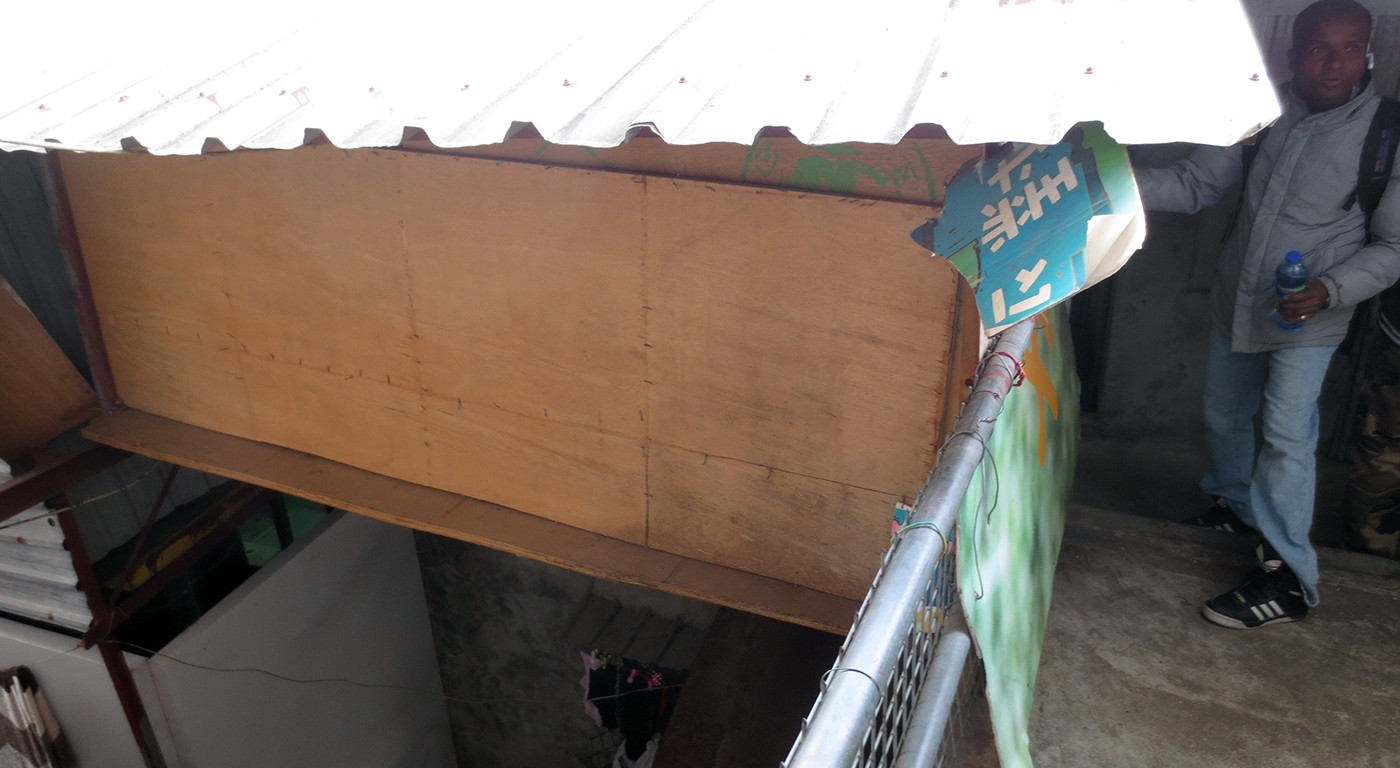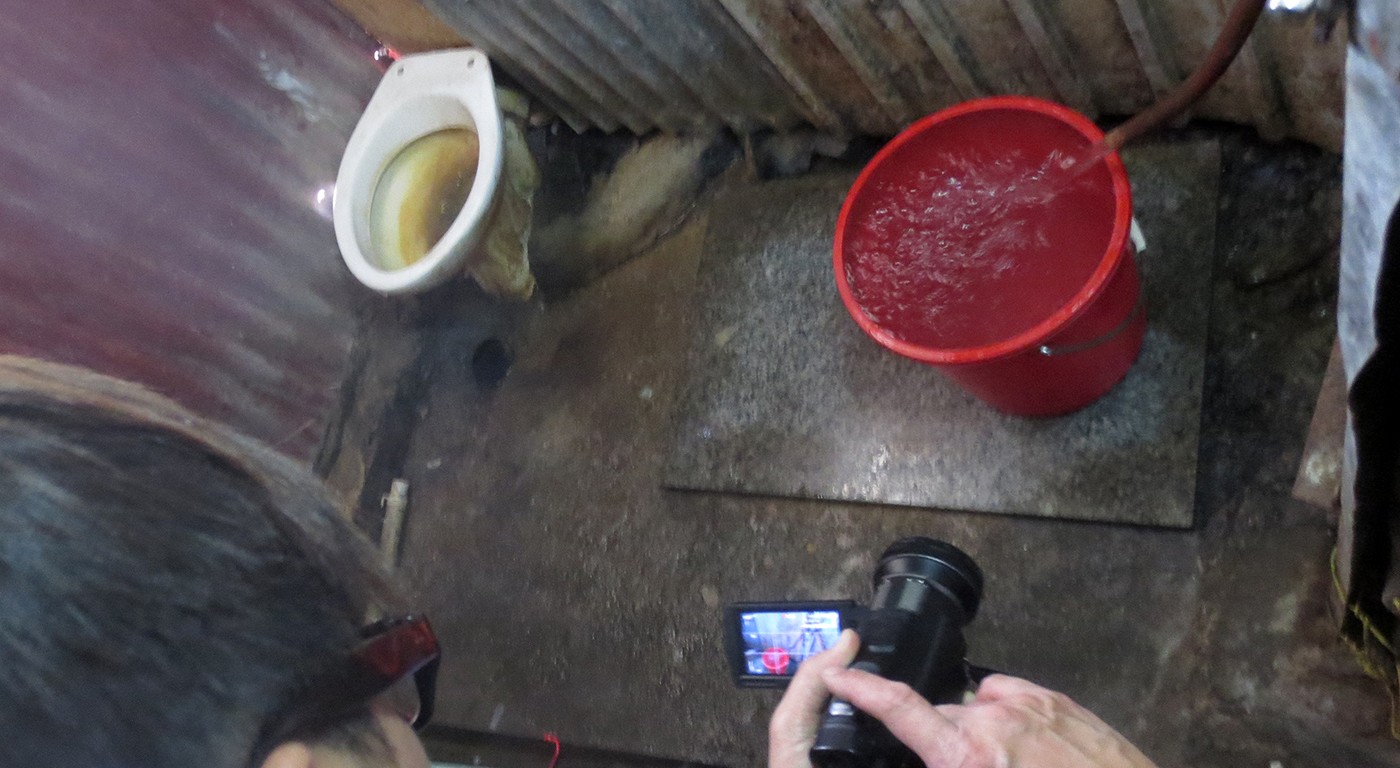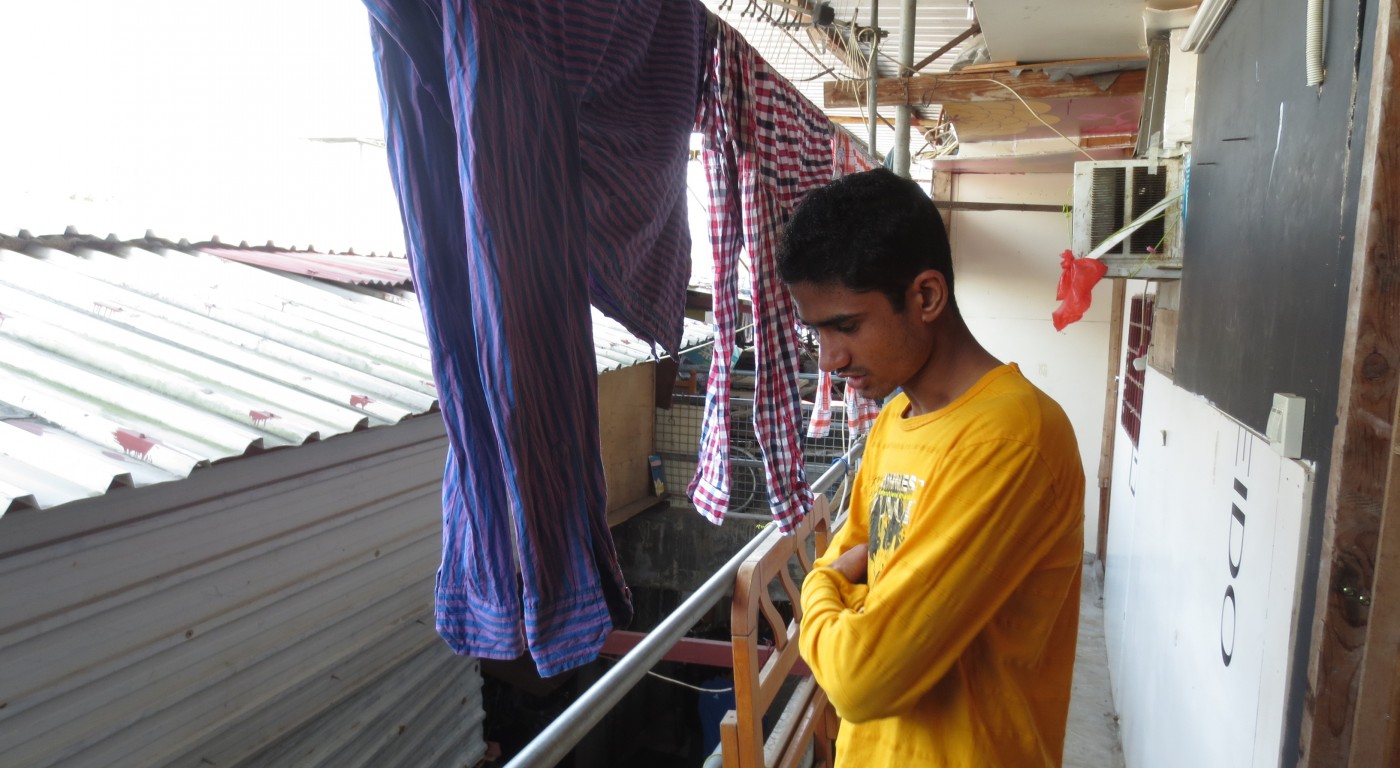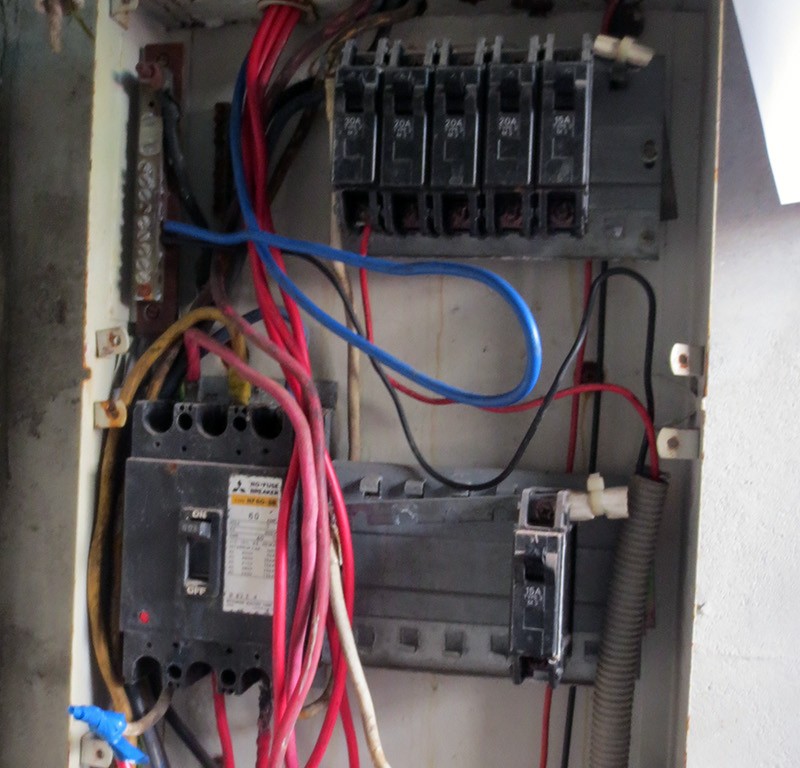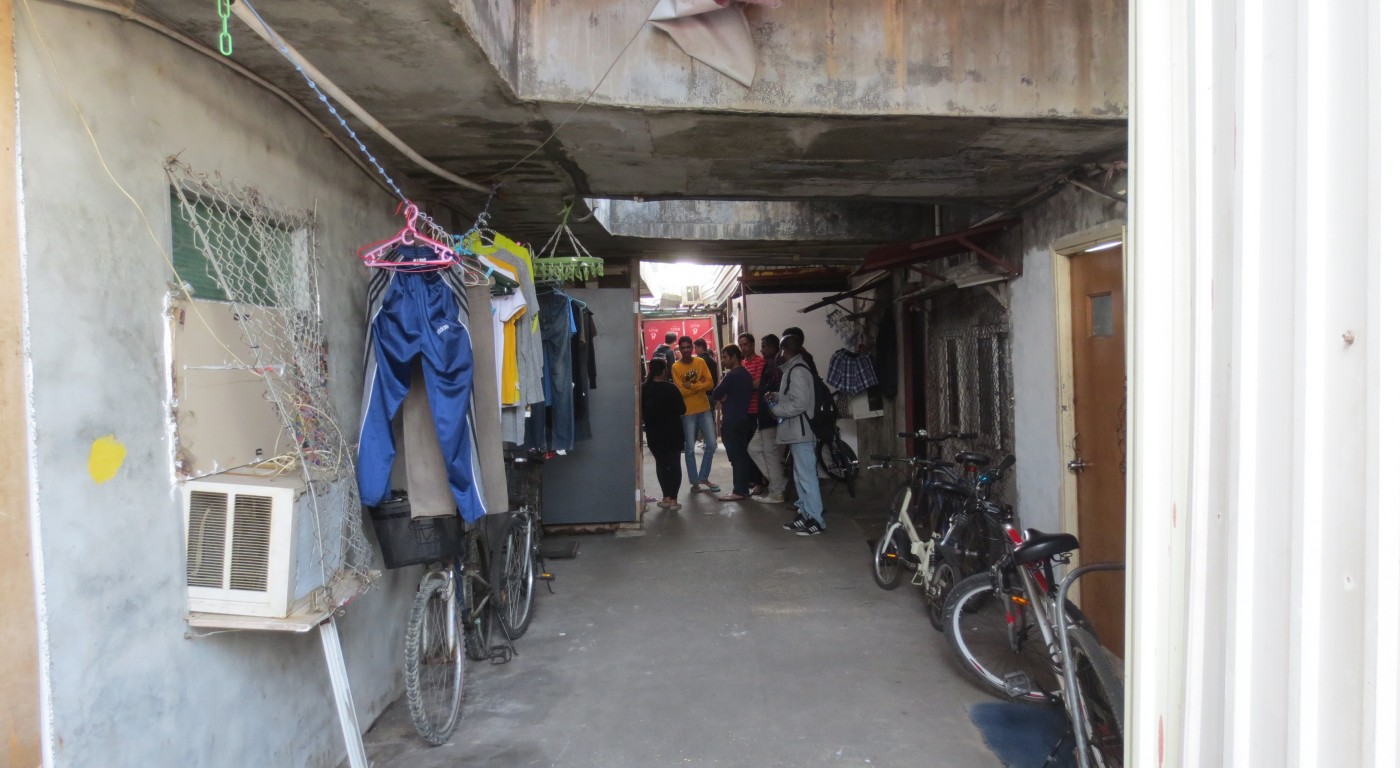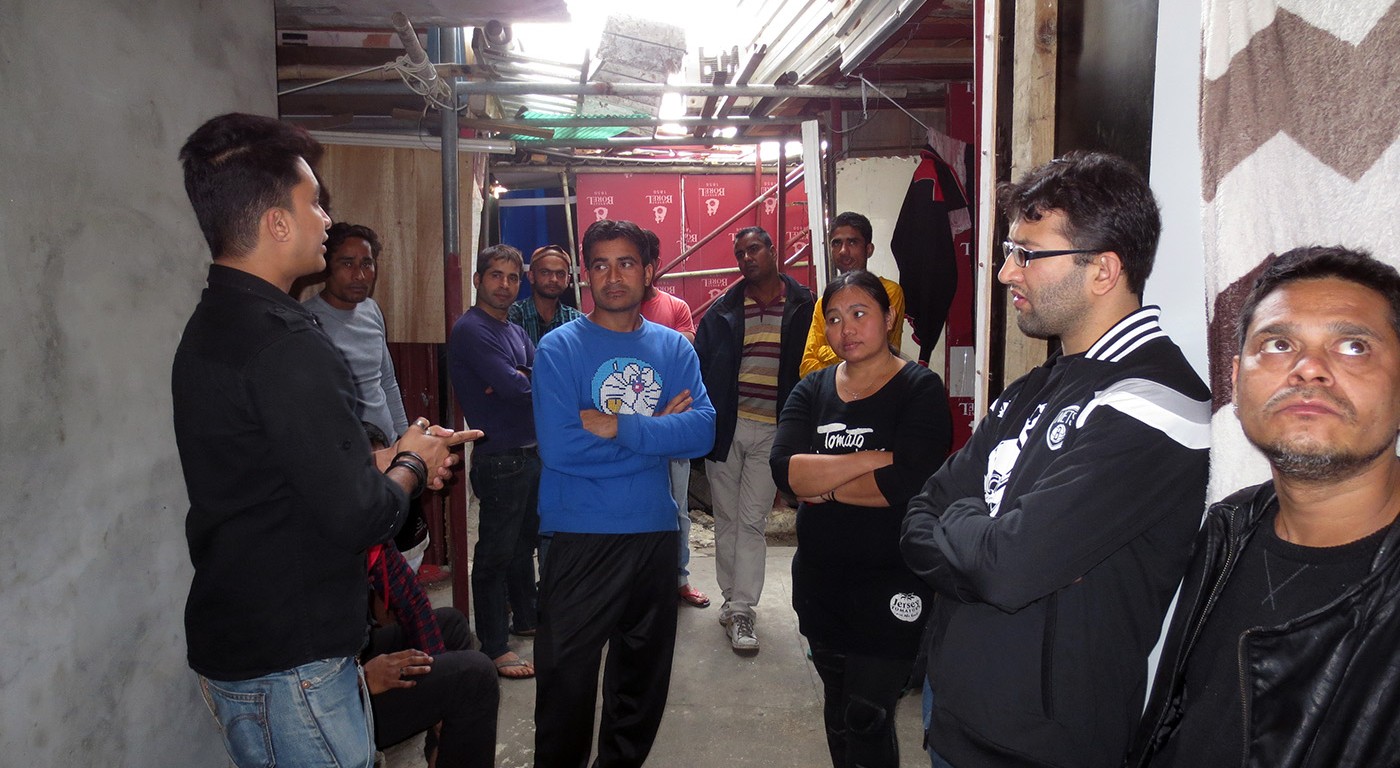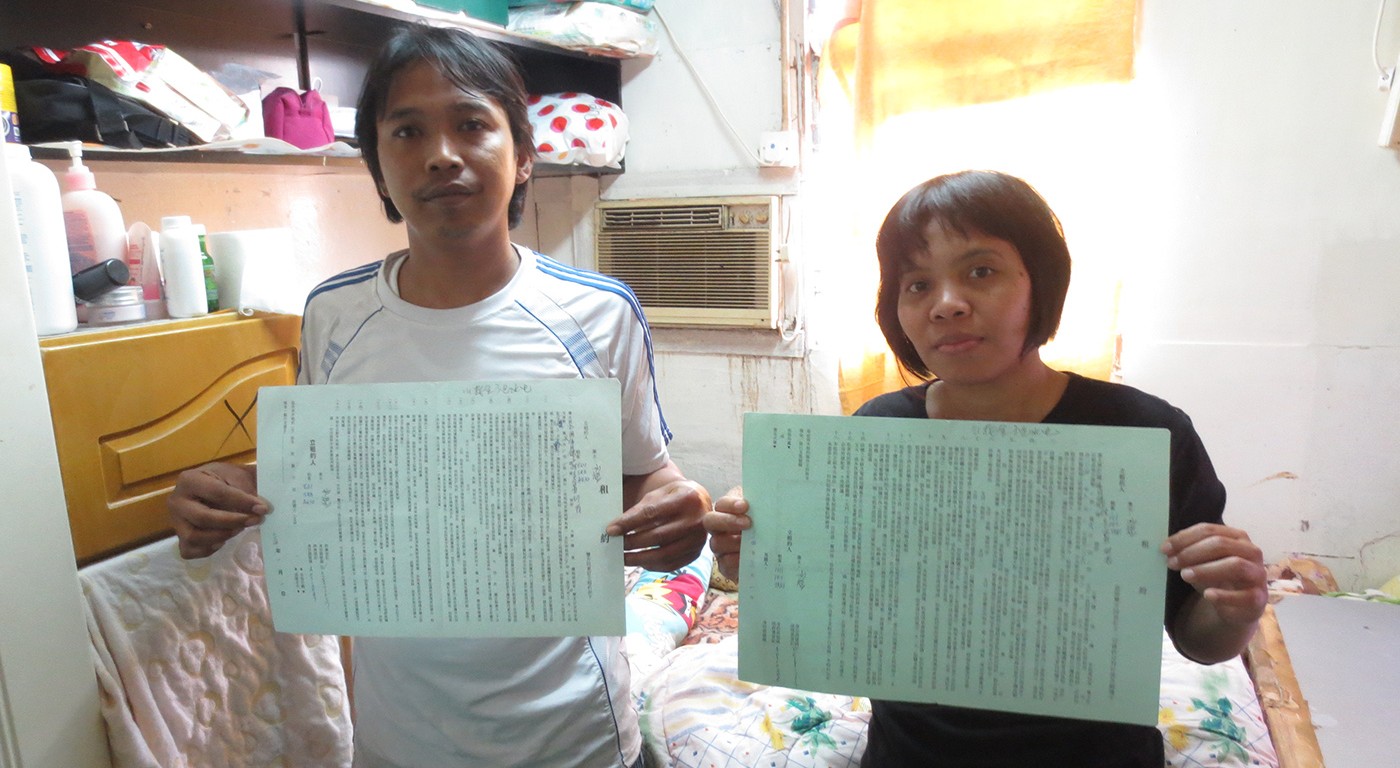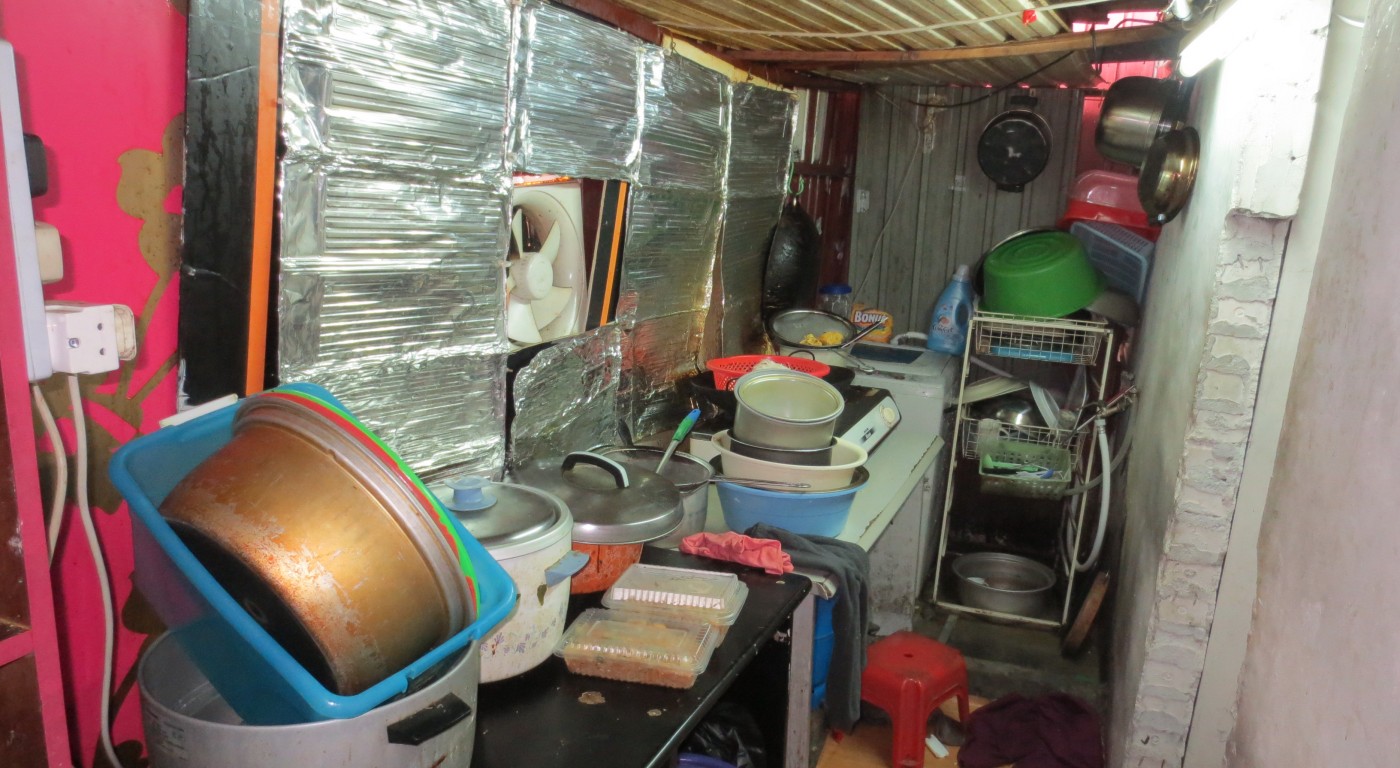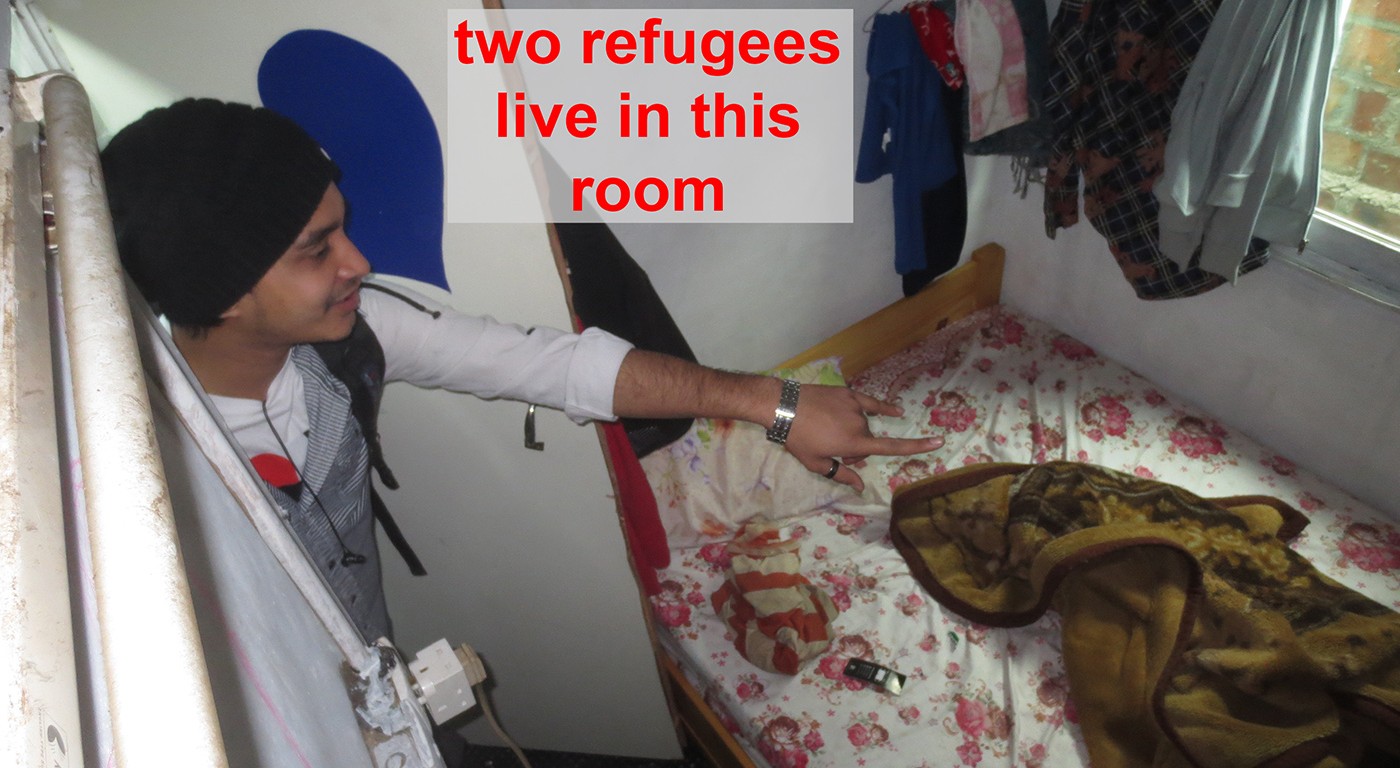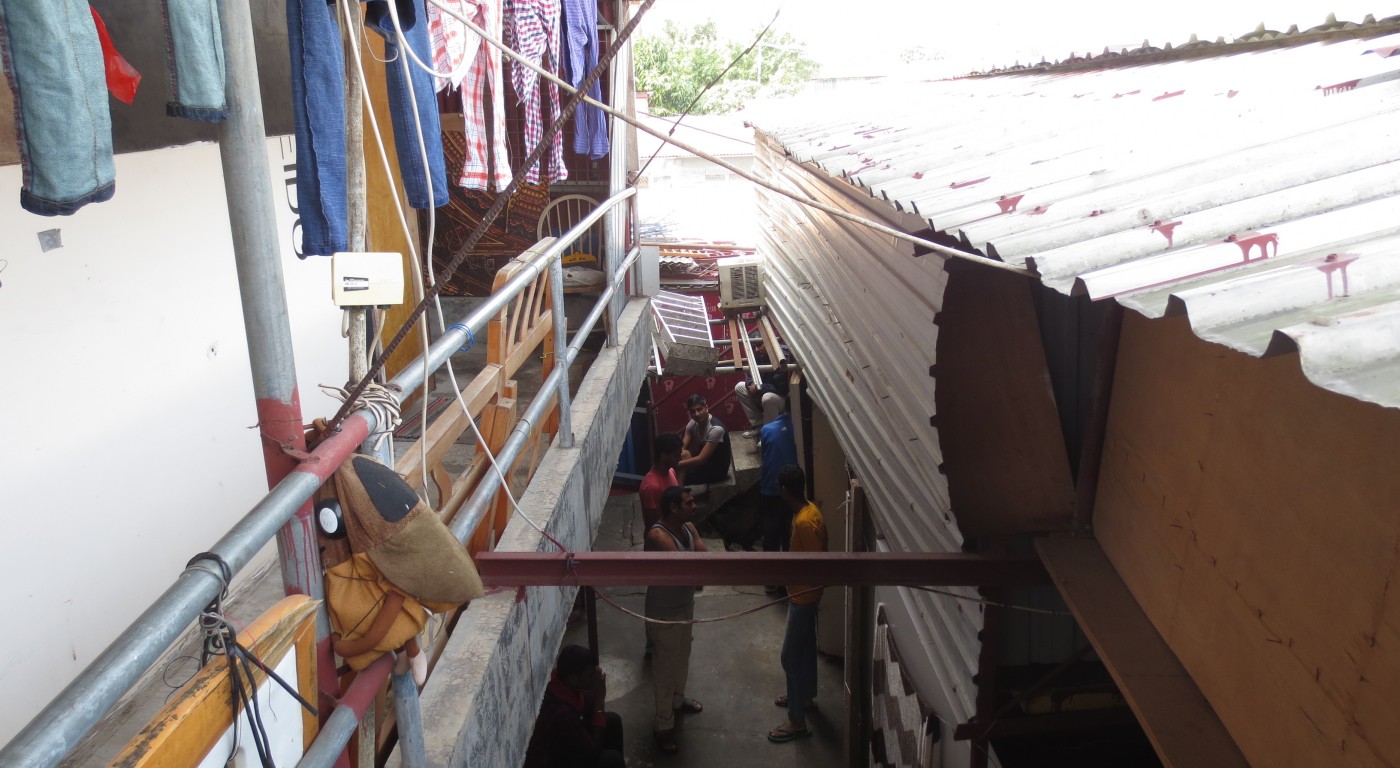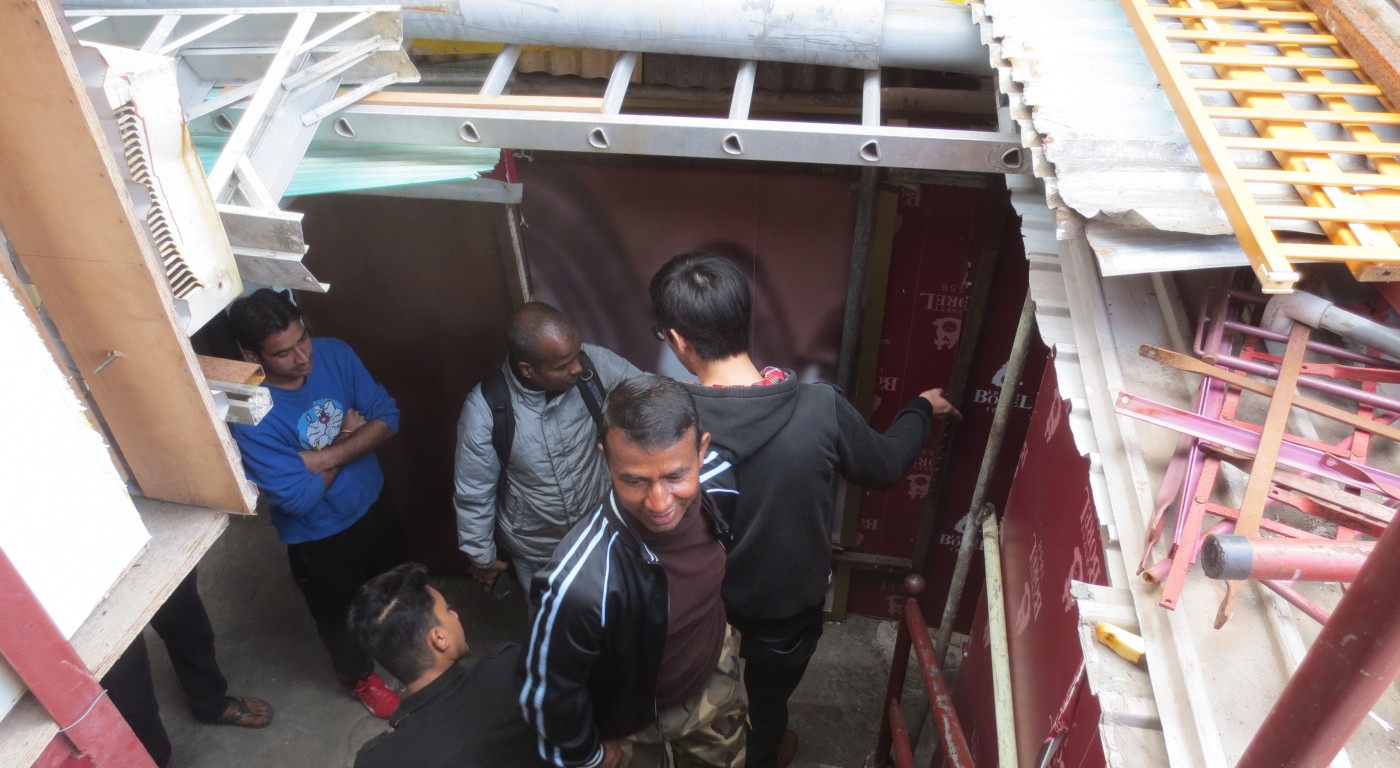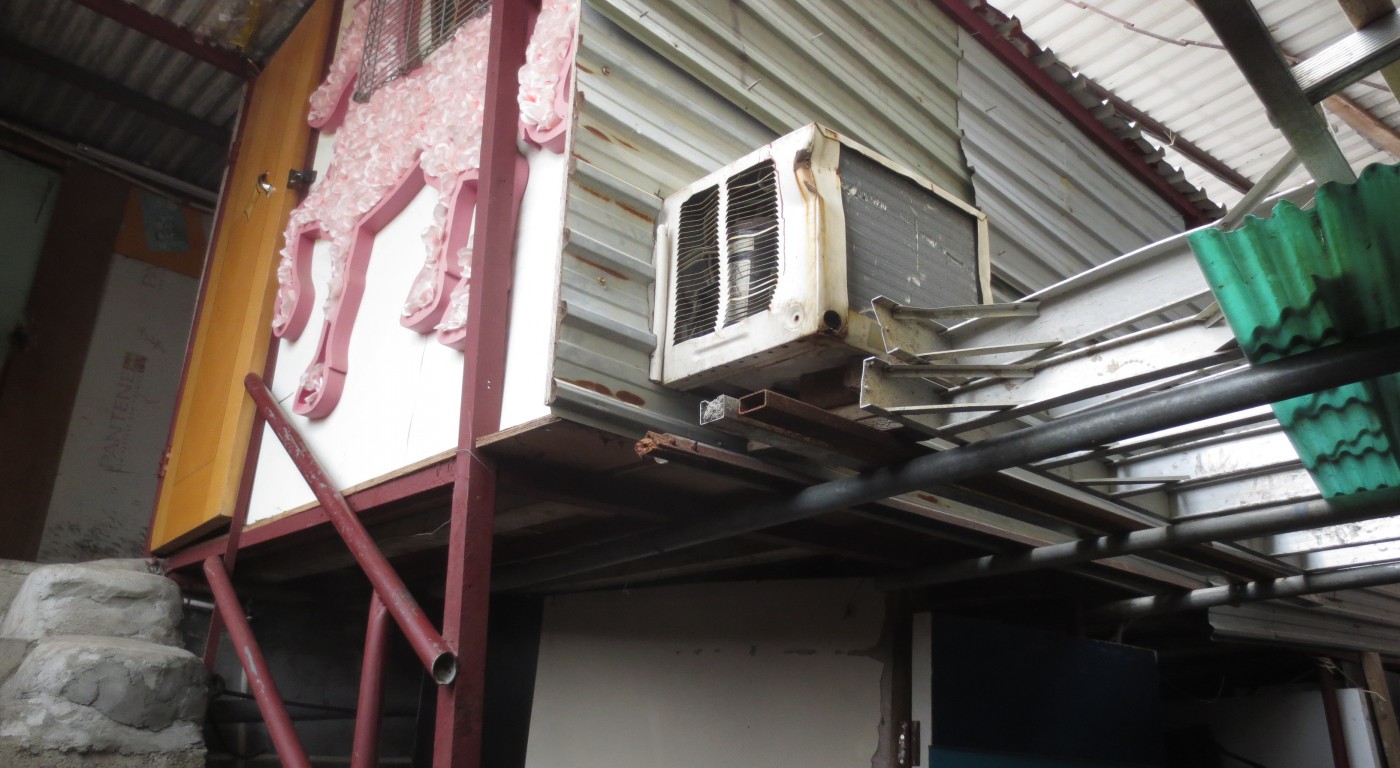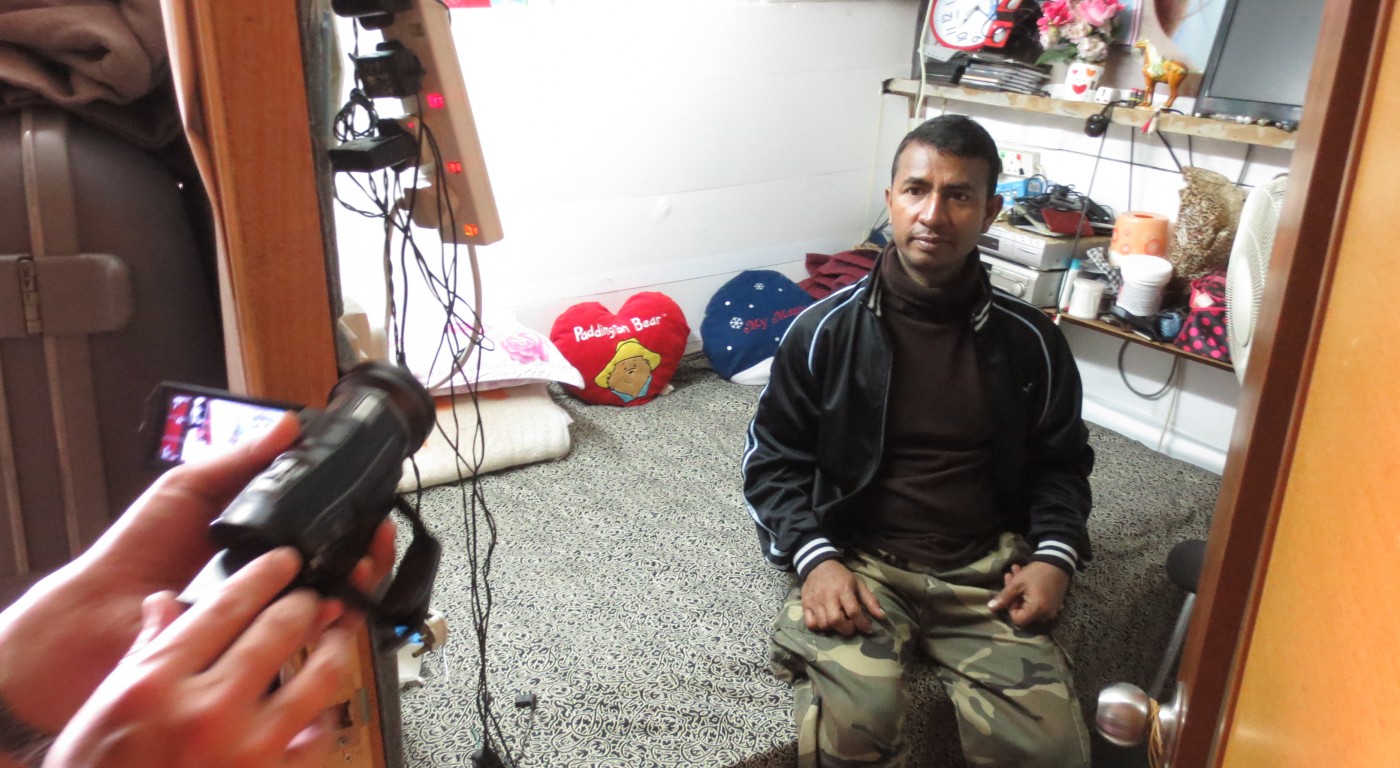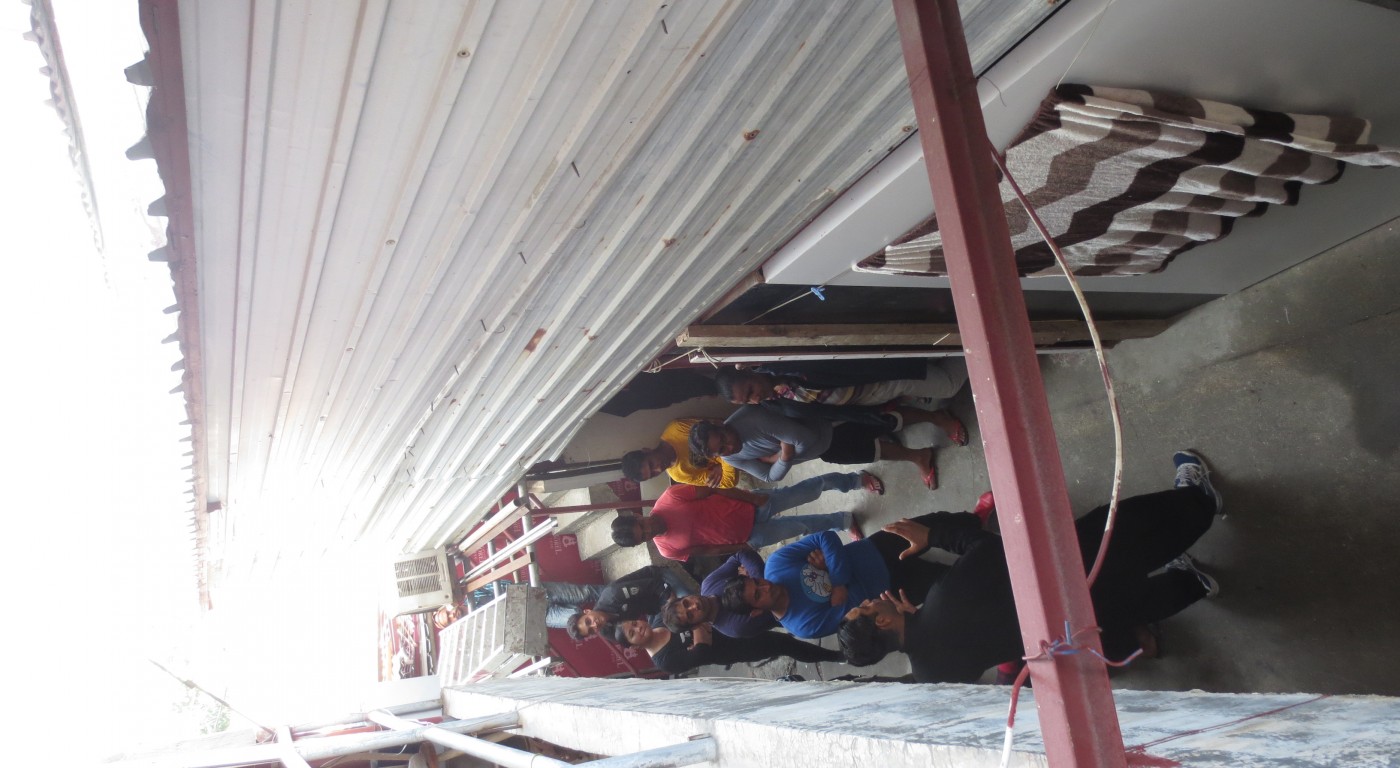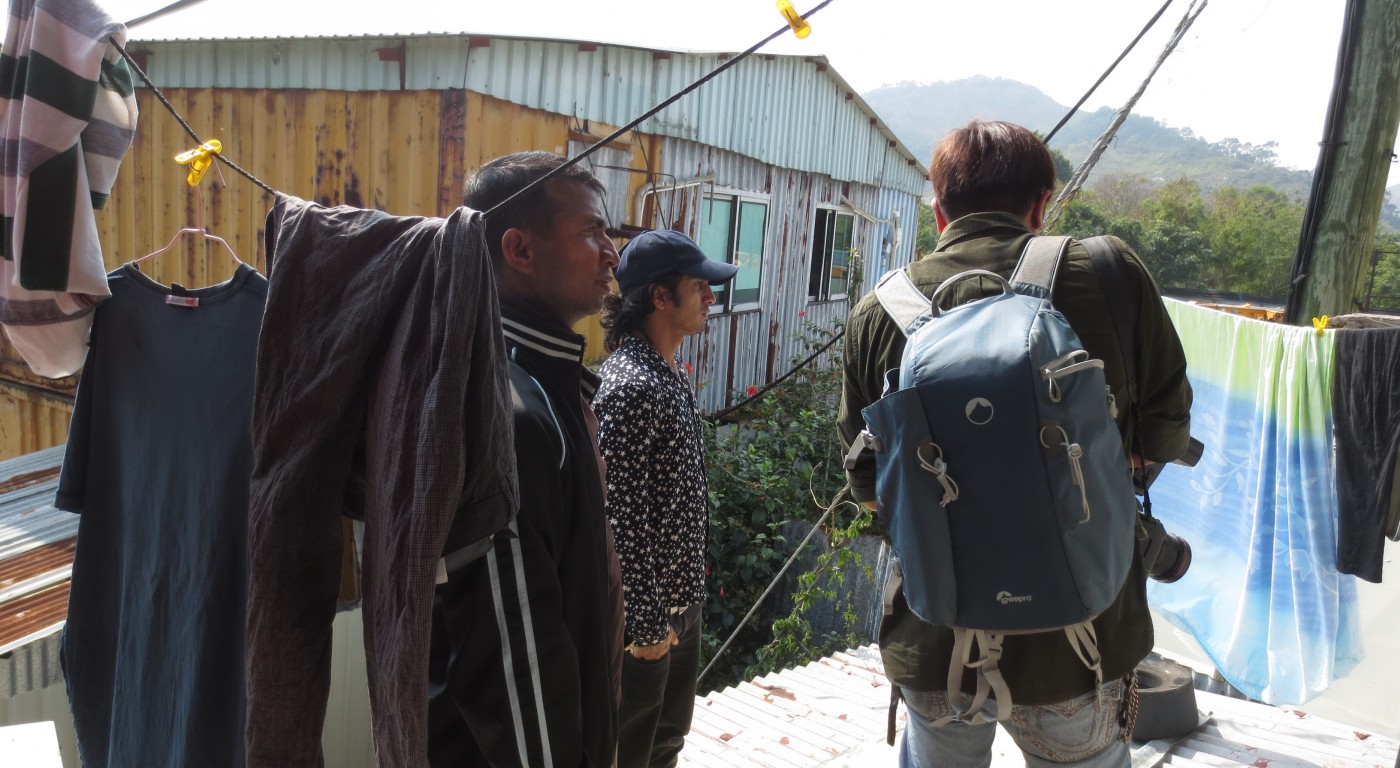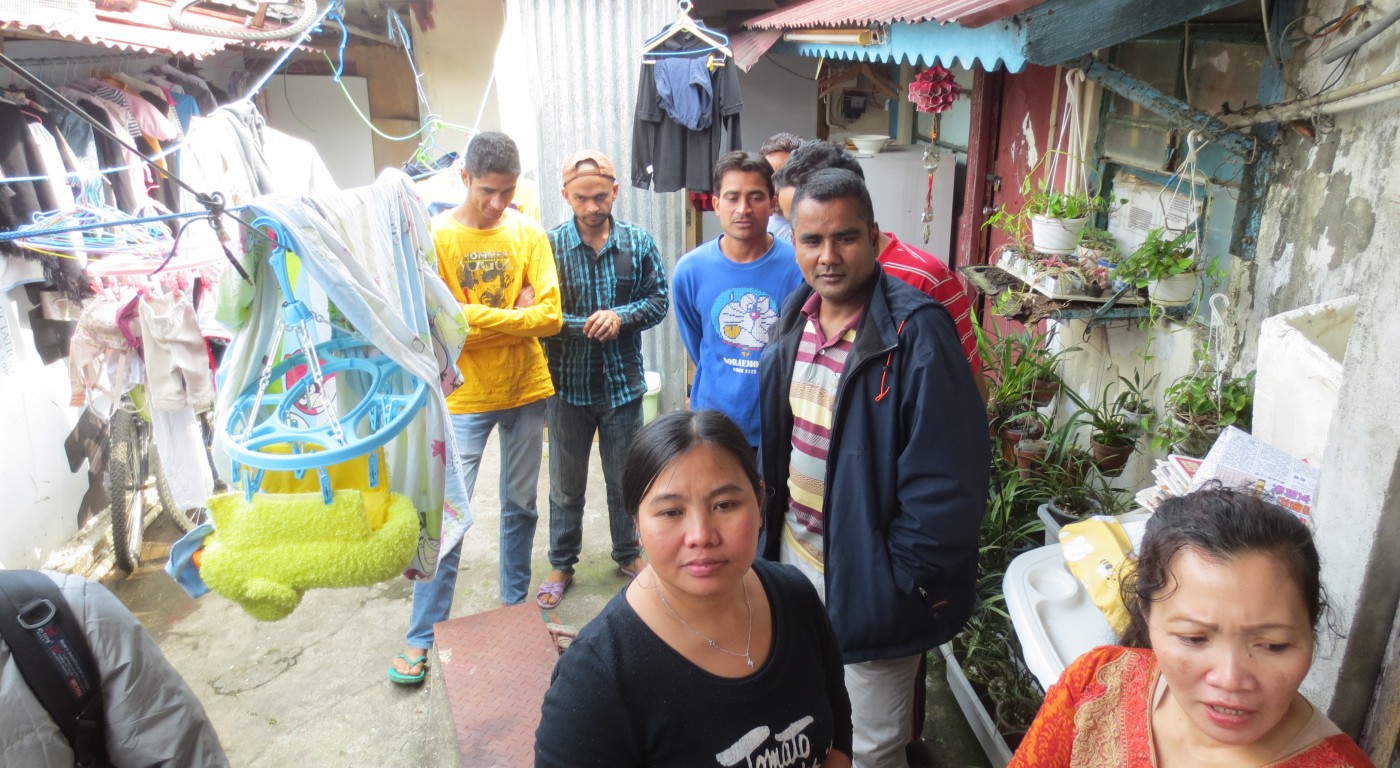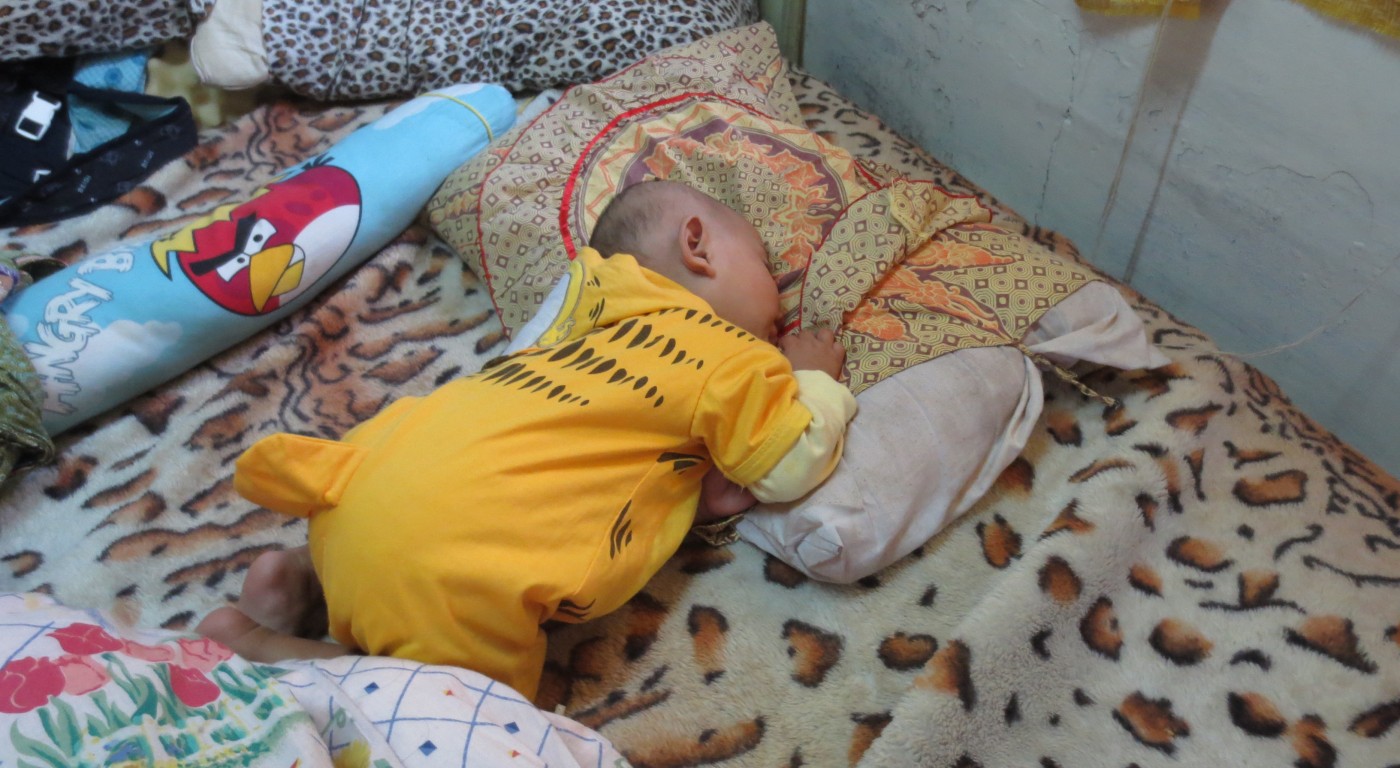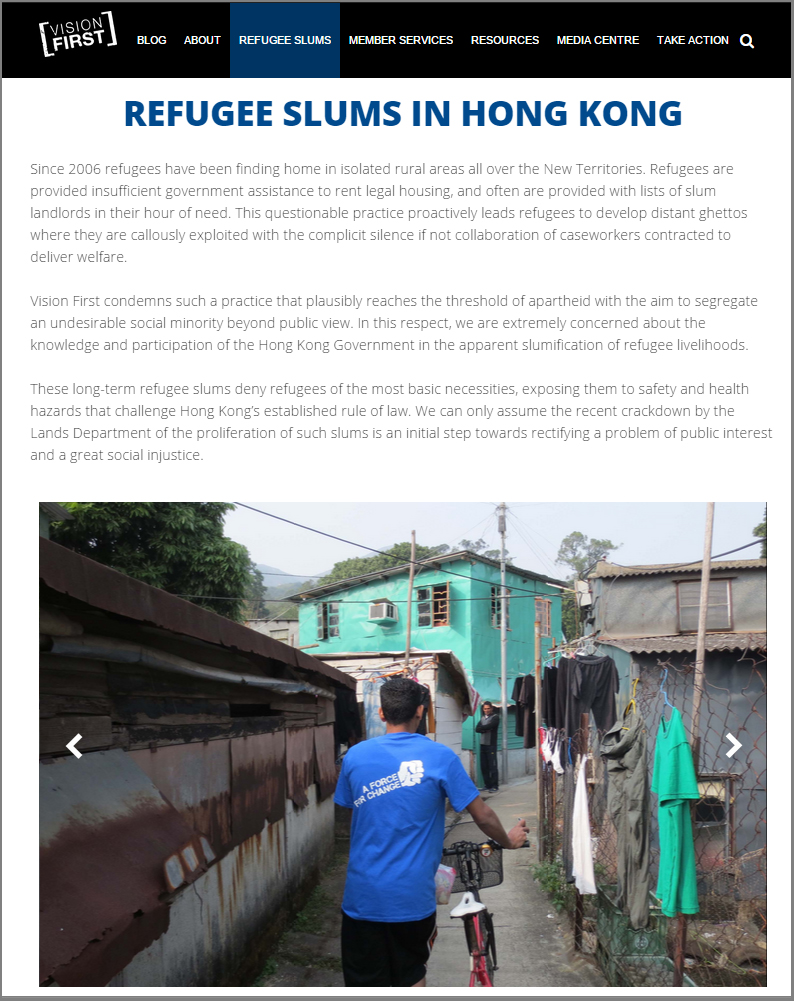Hazardous structures endanger life in the slum on two storeys
Feb 4th, 2015 | Crime, Housing, VF Report, Welfare | Comment
The death of refugee Sivarajah Sivatharan, known as Lucy, is drawing heightened attention to a slum where SWD contractor International Social Service (“ISS-HK”) settled him in collaboration with a purported landlord whose reprehensible exploitation of refugees must end.
Lucky was a Tamil who fled the war in Sri Lanka for the safety of Hong Kong. He was registered by ISS-HK for provision of welfare in September 2008. It is unknown when ISS-HK approved the unauthorized structure in which he met a burning death on 29 January 2015, though it is reported that he lived there for three years and the oldest signed contract we obtained is dated 23 August 2013.
Over 30 refugees are presently settled in dangerous illegal structures erected on Lot 451 (rear portion) in Demarcation District 106 in the village of Ng Ka near Kam Tin. This repugnant arrangement degenerated markedly since our first report in November 2013 on “The Slum On Two Storeys”.
Documents obtained by Vision First suggest that the landlord bought this lot in late 2001 for 580,000$ after previous pig and chicken farming licenses were revoked. Around 2010 the landlord entered into a questionable, but highly lucrative arrangement with ISS-HK and, according to our calculations, earned more than 600,000$ a year in refugee rent assistance paid from the government purse.
The smug and arrogant landlord allegedly informed the Ng Ka Tsuen community chairman that he will rebuild the three burnt huts and rent them again. It is unclear whether ISS-HK will be in a position to continue its dubious relationship with this slum lord, let alone approve new shacks built over the site of the fatal accident after relevant authorities intervene.
Following the fire that took the life of Lucky, the refugees living in this slum raised a litany of grievances about the dangerous, unsanitary and inhumane conditions they endure:
- Dangerous overcrowding since 2010 pushed up occupancy from 20 to 35 refugees;
- The landlord displays good rooms to caseworkers, but lodges refugees in bad ones;
- Additional rooms were erected hazardously in empty spaces to maximize rental profit;
- Sanitary conditions are appalling with plastic bucket for showers;
- Certain rooms are little more than coffin-size cubicles on stilts with no standing space;
- Unbeknownst to ISS-HK, the landlord allocates more than one refugee per room;
- One unit with two small rooms is rented to 4 refugees forced to share 2 beds for 6000$;
- One unit with two small rooms is rented to 5 refugees for 6000$;
- Dangerous gas cylinder for cooking inside cubicle rooms with no windows;
- Appalling sanitary conditions with plastic buckets for showers;
- The landlord provided this heating devise for tenants to warm water to shower;
- Unsafe electrical works are concealed from view in closets;
- Obstructed, narrow passages would ensure a death zone in a fire at night;
- Overhead storage of flammable material present a serious fire hazard;
- Highly combustible foam-boards and plastic covers partition all cubicles;
- Lack of fire-fighting equipment and fire exits from the second storey;
- The landlord charges each refugee about 500$ on top of the 1500$ rent assistance;
- The landlord charges each refugee two months deposit on top of what ISS pays;
- The landlord overcharges refugees for electricity use using dodgy meters;
- The landlord refuses to issue receipts for the cash he collects from refugees.
Refugees raise doubts about ISS caseworkers systemically approving countless tenancy agreements for such apparent unauthorized structures. Especially when refugees report they are rarely: (i) visited in the rooms; (ii) asked to supply proof of ownership as required by SWD; (iii) asked how many of them are allocated to each cubicle. (iv) this obviously poses challenges to confirm the existence of basic functional facilities for cooking and washing and the overall safety of the cubicles.
Vision First urges relevant authorities, including the Social Welfare Department and Lands Department, to urgently clamp down on this dangerous slum and provide refugee tenants with the means to effectively compete in the rental market without having to resort to renting a room in another slum.
The least owed dearly departed Lucky is that his friends do not fall from the pan into the fire.
VF Report: lease enforcement action to be stepped up
Jan 29th, 2015 | Crime, Housing, Legal, VF Report, Welfare | Comment
On 28 January 2014 senior executives from the Lands Department held a meeting with Vision First and Refugee Union representatives, one of whom has continuously resided in a slums paid for with government funds since he arrived in 2006.
The refugees presented three voluminous bundles of photographic evidence to formally lodge complaints on 69 questionable compounds erected on lots that Lands officers agreed were “mostly for agricultural use, including chicken and pig licenses no longer in use, because the government doesn’t allow [such business] having imposed many restrictions on farmers.”
The delegation was assured that registered owners were in breach of lease covenants for any structures that were not exclusively for agricultural or gardening use. It was brought to attention that the issue is not whether housing was properly constructed, but that no housing whatsoever is permitted on farmland and as such would be targeted for demolition.
It was noted that irrespective of collusion (by way of documentary inspections and site visits), registered owners were ultimately responsible for the existence of structures that third parties allegedly exploited to profit from the welfare program for refugees. The Lands Department did not consider acceptable justifications that ‘primary tenants’ had rented land for purposes landlords were unaware of.
Acting on the above mentioned complaints, warning letters demanding the removal or demolition of unauthorized structures are likely to be sent out copiously, failing which encumbrances will be registered with the Lands Registry and the government will take steps to ‘re-enter the land’.
A promise was made for zero tolerance of lease breaches. An officer explained, “Any conversions that are not designated for agricultural or gardening use are prohibited. Any structures that are not described in the land schedule must be removed”. It was categorically emphasized that settling refugees in these compounds constituted an offense under the law.
The delegation was told: “The government is very concerned. Everyone is concerned with the health of the occupants. We will step up enforcement action, including with estate agents … the Social Welfare Department is concerned with the management and supervision of ISS.”
A refugees who spearheaded the anti-slum campaign remarked, “The government accepts there is a huge problem. Last week my officer said ISS only approves the houses after getting approval from the Lands Department.” Vision First is hopeful that the tide is turning on the reckless practice of settling destitute refugees in dangerous and unhygienic slums away from the public eye. At what price?
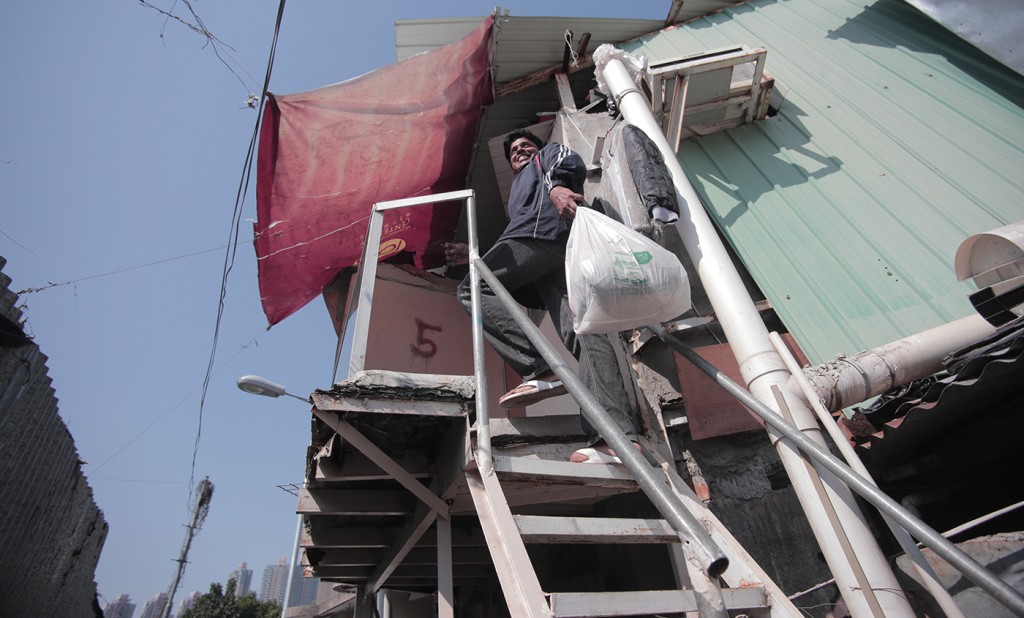
Stop forced cohabitation
Jan 21st, 2015 | Housing, VF Report, Welfare | Comment
Under the heading “WE BELIEVE”, our website defines a key principle held for its fundamental and universal value. It is worth repeating, “Vision First is a proponent of the view that every asylum claim must be approached on the premise that it is genuine … No adverse inferences must be drawn … asylum seekers should benefit from the rights and privileges enjoyed by all citizens – as economic expectations are hardly incompatible with seeking asylum.”
In 2012 and 2013 Vision First was informed that hundreds of Bangladeshi refugees in remote slums were forced to choose between “rent assistance” and “food assistance”. Refugees were informed that they could not have both and should therefore share huts and emergency rations with conational.
Before learning about human rights and state duties, uninformed refugees didn’t know any better and such a shameful arrangement was regrettably widespread. In our experience other nationalities were not subjected to this biased treatment that apparently did not occur in urban areas.
Today Vision First reports that refugees are sometimes being forced to cohabitate in Kowloon where the lousiest, cheapest subdivided rooms cost more than 3000$. In principle there is nothing wrong with refugees living together, a practical solution to mitigate welfare constraints when friendly cooperation exists.
The process however degenerates into cruel and inhuman treatment when cohabitation is coerced. “Find a friend to share a room or ISS will not pay rent” is hardly a solution. Several refugees reported requesting assistance to avoid being homeless in winter nights only to be told to find somebody to share a room with. They emphatically informed caseworkers that they knew nobody suitable and were sleeping on the street around the Cultural Centre.
How does a government contractor ignore the plight of certain refugees when rooms in guesthouses are available to other nationalities? Besides, homelessness is terrible for anyone, irrespective of country of origin.
A referral from SWD for a non-refoulement claimant should only be considered by the state of destitution, connections and resources of the person concerned. Other factors would shift public welfare into a highly undesirable form of migration control.
A refugee homeless since 22 December said, “I told my officer that I am sleeping next to pillar number 2 at Star Ferry. Several times I told him that I am homeless. I and freezing because I don’t have a blanket. I begged for a guesthouse but was told that I should find somebody to rent a room together. But I don’t know anyone and even if I start looking for a room it will take several days … and nights!”
There are good reasons why we shudder at caseworkers uttering the words “on a case by case basis” that generally signal an abdication of duty and shunning of responsibility on the one hand, and on the other a failure to have regard of the best interest of refugees with reasonable consideration of their means.
Vision First will report several incidents of forced cohabitation to the Social Welfare Department in hope that recommendations will be made to stop such shameful practices. For those we encounter in outreach the problem will be solved, but how about those we don’t?
Later we can only shake our heads when egregious treatment is excused with the other highly abused expression, “It was a misunderstanding!” Refugees are annoyed by this excuse and underline that honest misunderstandings work both ways – sometimes you should get too much!
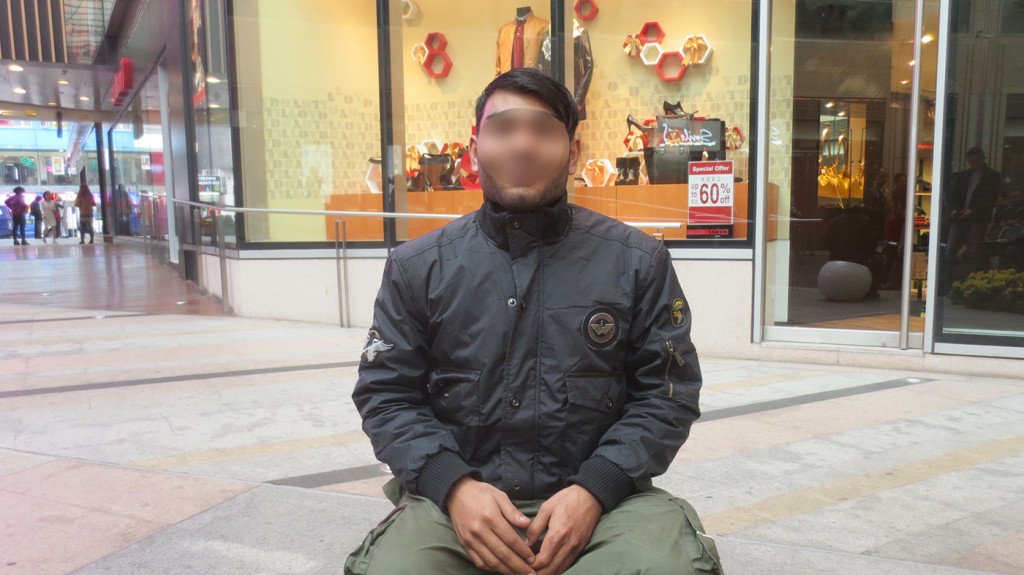
Mother and baby abandoned in the street
Jan 15th, 2015 | Housing, VF Report, Welfare | Comment
12 January 2015. It’s a cold night! Single mother Siti endures the worst case scenario. She lost a friend’s support and ISS-HK failed to assist. She is in Fung Cheung Road Garden, near Yuen Long MTR. Her 5 month daughter cries. She prepares to sleep on a concrete slab. Nearby is a public toilet she uses to care for her baby congenitally sick since birth.
Vision First was informed that mother and child are service users of ISS-HK and their emergency situation was brought to the attention of their caseworker (name withheld) over several phone calls that afternoon and evening. Siti had been homeless for several weeks, because she is unable to secure a room for the 2250$ budget she offered. A refugee family supported her until the landlord complained.
The mother reports she called her ISS-HK caseworker for emergency assistance. She suggested that a room in a guesthouse be provided for a few nights as she continued the challenging search for a permanent home – prices for single room 3000$ and up. Apparently her request was turned down. She said she was told that guesthouses are for men only. Gender discrimination?
Siti reports that the caseworker offered assistance at the ISS-HK shelter in Central instead. However, the mother lamented she had no money for the MTR fare, about 27$ and pleaded in the name of her sick baby. Regrettably her implorations fell on deaf ears and the caseworker hung up the phone. Mother and baby then slept rough on a very cold night.
Disappointing it is when those assisting the vulnerable come short on empathy and compassion. There might be stringent welfare rules against settling women in guesthouses, but surely they are overridden by civility rules against abandoning mothers and babies in the street in winter. Personal discretion and concern, if not professionalism, should prevail.
Caseworkers may possibly find themselves overwhelmed by crises that don’t neatly follow the service arrows in the colourful flow-chart before their eyes. Calling friends is often suggested as an alternative to destitution, but is it right to expect destitute others to provide aid? What if they are not available, or phone are off because they are not afforded credit? Public shelters in winter might be full or closed. Transportation money is not provided even when a solution might be in sight. Then perhaps frustration prevails before pressing demands that have become all too common.
Such situations are dangerous failures in service, as well as daunting failures in humanity.
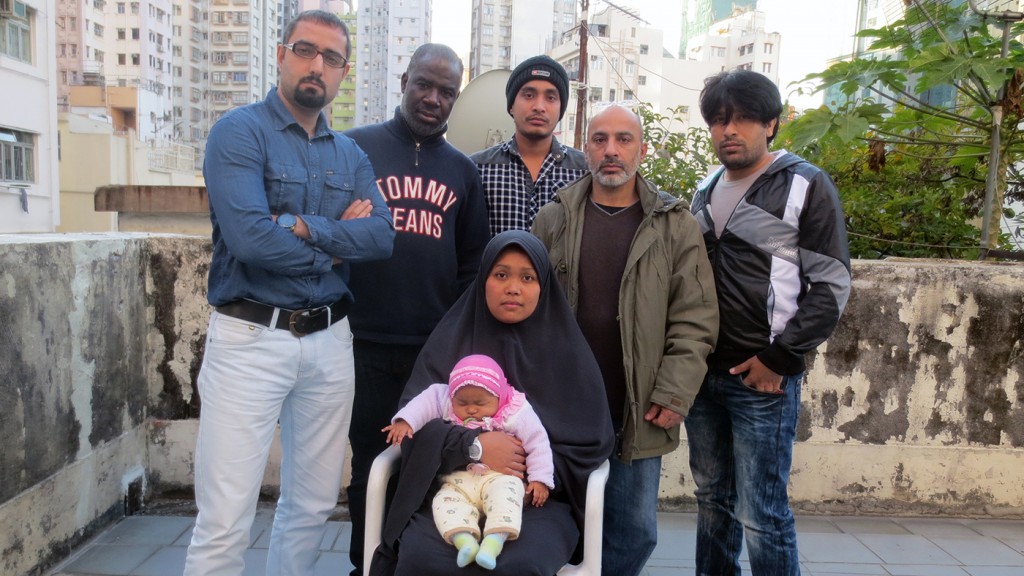
VF Report: ‘Slum like a favela’ hastily dismantled
Jan 14th, 2015 | Housing, VF Report | Comment
Vision First reported on the Slum like a Favela, south of Yuen Long, on 6 December 2013. Here ISS-HK paid from the public purse the rent of dozens of refugees. This compound, that defied belief with its unstable cubicles erected on metal stilts and piping, manifestly disregarded any health or safety standards or concerns.
Adding insult to injury Vision First documented that the purported slum lord recently expanded the compound – to maximize profits from refugees – with additional metal stalls jutting precariously off the second level, two meters over the footpath. It was shocking to see that a crawlspace, previously used as a doghouse, had been converted into refugee bed space! There is no end to this owner’s ingenuity and greed.
Regrettably, there is yet no sign of enforcement action by the Lands Department here.
However, according to initial documents gathered by Vision First, the purported landlord’s gainful collaboration with ISS-HK started in May 2011 and continued till December 2014, when suddenly, and for reason unknown, caseworkers pulled the plug on this compound. Why?
Indicative is that nine present residents displayed leases and ISS-HK contracts stating, “I confirm my address to be at Letter box 224, 18 Shek Tong Tsuen, Au Tau, Yuen Long.” Alarmingly there are other refugees living 15 minutes down the hill with documents showing the same address and signed by the same person. It is reported that many more are on the same books.
A refugee described being visited by an ISS caseworker in December 2014, the first time in three years. The refugee tenant says he was told roughly: “The downstairs structure is not OK. Your room is dangerous. January is last money coming for your room. This is ultimatum and you must leave.”
Not without reason, the refugee rebutted that he had lived in that same room for four years, not by choice but out of necessity, as he couldn’t afford anything better. If his room was deemed suitable for human living and conformed with regulations before, why leave now?
The officer apparently replied that this was not his problem. Rather it was “ISS team problem. They report to me. They said the structure is no good. This place is not safe for you.”
Where shall this refugee go when suddenly deprived of the social relationships he built over four years in the same slum and when not provided with the necessary assistance to find proper housing? Will another similar slum welcome him and the other evicted?
Another refugee commented, “ISS is making big drama for refugees. They want us to leave these rooms and be homeless. They think that stopping the rent solves the problem, but there are no rooms we can rent for 1500$. If I go working and police catch me, I tell the judge that ISS no help me and I have to go working. Then my case-officer come to explain to the judge?”
We can’t but wonder about the reasons why ISS-HK is suddenly keen to close down slums.
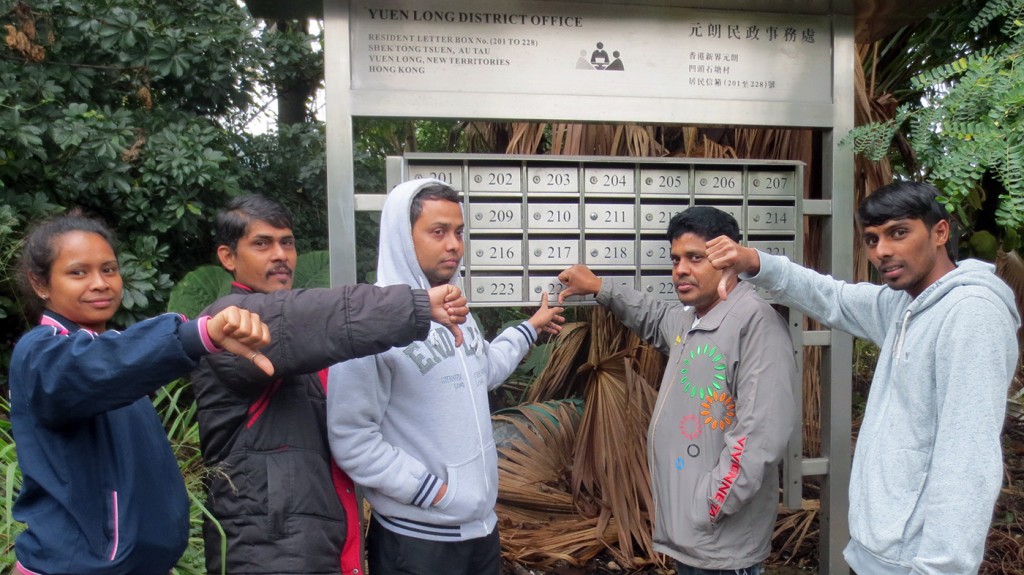
VF Report: Criminal intimidation and arson in a refugee slum
Jan 12th, 2015 | Crime, Housing, VF Report | Comment
The video below shows thugs threatening refugee settled in a slum in the New Territory and what appear as throwing bricks at an apparently non-compliant refugee tenant. From the video it is understood the registered owner is required by the Lands Department to purge unauthorized structures rented to refugees through the government contractor ISS-HK.
Vision First believes the government should do more to guarantee the safety and protection of refugees caught in the crossfire between slum lords and Lands Department officials. After two years of yawning reactions to our reports on unauthorized structures settling homeless refugees (who are prohibited from working) it appears that lease enforcement officers are taking action.
While the official line remains “… this office is still gathering the necessary information about this case”, Vision First has been informed from refugee sources about increased inspection and enforcement action in several slums south of Yuen Long, from where dozens of refugees were coerced to hastily resettle last week.
This is undoubtedly a welcome development supporting our opinion that refugees were settled in 69 dreadful compounds, as well as dozens of lone huts such as this one ‘around a tree’, with blatant disregard for their well-being, public safety and human rights in general.
A dire warning must be raised. Although refugees lived in slums for lack of earning power and housing alternatives, the responsibility for this crisis falls squarely on the shoulders of SWD officers who failed to effectively monitor their contractor. An officer informally disclosed to Vision First that they still haven’t visited these slums and obtain their principle information from this website.
Vision First obtained copies of documents sent by District Lands Offices to registered owners (critically not always equivalent to the purported landlords in ‘collaboration’ with ISS-HK) warning not to “erect or construct any building or structure of any description on the Lot or any part thereof without having obtained the approval … Breach of the said covenant will give the Government a right to re-enter the Lot.”
A notice ordered, “I hereby require you to remedy the said breach by demolishing and removing the Structure in all respects to my satisfaction within 28 days from the date of this letter, failing which … the Government’s right to take lease enforcement action against the structures … re-enter upon the Lot … other actions as may be deemed appropriate …”
Problematically, landlords are made aware that they risk losing more than a gainful ‘collaboration’ with ISS-HK. If the Lands Department re-enters the land, owners will be struck off lands registries thereby forfeiting use and enjoyment of properties forever.
Here is where relations deteriorate and get ugly: In the case below, which Vision First has been told is not an isolated incident, thugs were summoned for the dirty work of threating and intimidating refugees to leave in a hurry, or else …
Is it sufficient for ISS-HK case workers to urge refugees to hastily relocate without offering affordable rooms, given they have no money and no right to work? Is it acceptable for SWD to wash its hands of a crisis they failed to avert and was foreseeable two years ago? Why are vulnerable refugees exposed to criminal intimidation of the sort they might have fled in their homeland?
VF Report: The Slum in the Honeymoon House slated for demolition
Jan 7th, 2015 | Crime, Housing, VF Report | Comment
On 11 September 2013 Vision First reported on the Slum in the Honeymoon House where ISS-HK settled more than 30 refugees, including babies, in wooden shacks and metal containers. In our view, this compound clearly demonstrated the result of unsavory practices between an unscrupulous purported landlord and a government contractor who, at a minimum, failed in due diligence.
Over the past sixteen months, Vision First regularly visited this slum collecting evidence of refugees being housed in dangerous and unhygienic structures that no right-minded person could remotely consider suitable for human beings. A lack of sanitation and sewerage was the least of the problems, as these ramshackle huts seemed on the verge of collapsing under their own weight.
Further, we are alarmed that refugee, some having lived there for 5 years, raise concerns about ownership as they inform about a slum lady who used a company (names withheld) for tenancy agreements to receive rent from ISS-HK, despite the land not being registered in that company’s name. Refugees report that the slum lady sold the property in early 2014 to a distraught new buyer who now faces stringent enforcement action by the authorities.
In the wake of numerous cross-departmental complaints filed by Vision First, the Lands Department is finally cracking down on the unauthorized structures erected in this slum that must be demolished or removed as a matter of urgency. Notices issued on 11 and 29 December 2014 have been retained as evidence that ISS-HK settled refugees in illegal structures not fit for human habitation. Again we wonder what supporting documents were submitted to SWD.
The Lands Dept notices call for demolition and warn “The public should thus stop to purchase or rent or reside in the unauthorized structures erected on the Lot. Otherwise, you may face losses or liability in the event of enforcement action by the Government against unauthorized or unlawful structures.”
The department is taking a surprising step, “Besides, for cases where estate agents have been involved in facilitating sales/rental transactions, the District Lands Office will refer to the Estate Agents Authority for her appropriate action.” We wonder if the fallout will implicate ISS-HK caseworkers who also facilitated rentals.
Recently we have been informed from refugee tenants of caseworkers contacting and urging them to move hastily out of this compound. Further, Vision First has been informed that refugees were told these huts were illegal and they would be settled in guesthouses while they looked for suitable rooms. This came as a shock to a refugee who queried, “Why was this location approved by ISS for seven years and suddenly we all have to leave in one week? If it is not good now for us, why was it good before?”
Lands Department inspectors surveyed every inch of the lot and found that not only the tin shacks, but also the solid brick-and-mortar homes are illegal. In no unequivocal terms, the registered owner was told that the entire lot must be returned to its original farmland condition for the raising of crops, which we presume excludes categorically the raising of refugee children.
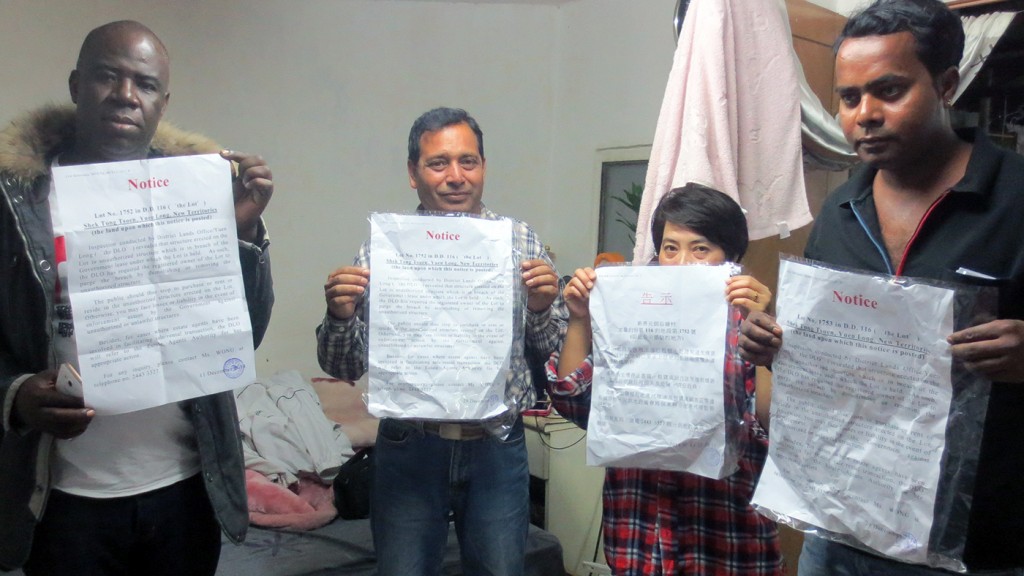
VF Report: Slum on the Hilltop ordered to be purged by Lands Department
Jan 5th, 2015 | Crime, Housing, VF Report | Comment
On 13 September 2013, Vision First reported on the Slum on the Hilltop where ISS-HK paid rent for many refugees at least since 2010, according to the oldest resident interviewed. We were informed that other refugees had lived at this location earlier, under the auspices of ISS-HK, before moving elsewhere.
At this slum Vision First collected copies of numerous Agreements on Provision of Assistance, issued by ISS-HK and duly signed by caseworkers, confirming that the refugees in question were said to officially reside at the following addresses. We cannot but query if any of them is indeed accurate:
- 6/F, House 18, Chuck San Tsuen, Yuen Long
- 89 Shek Tong Tsuen, Yuen Long
- 18 Chuk San Tsuen, Yuen Long
- DD116, Lot 1896, 1892 39 Chuk San Tsuen, Yuen Long
- 2788 Kong Tau Tsuen, Yuen Long
- G/F, House 18, Chuck San Tsuen, Yuen Long
- DD116, 1732 Chuck San Tsuen, Yuen Long
On the most part, the refugees we interviewed were visited by ISS-HK caseworkers in 2013 at the Slum on the Hilltop that was approved as a suitable residential location. It may be assumed that the purported landlord provided ISS-HK with adequate documentation for rent assistance (1200$ a month in 2013) to be approved for each refugee. This arrangement continued into 2014.
Vision First emphatically condemned this illegal structure as unsuitable for human habitation, an opinion that obviously we are not alone to share.
Fifteen months later, in December 2014, a Notice by the District Lands Office, dated 29 August 2014 informed refugees that structures had been erected at that location without approval, in breach of the conditions in the Government lease. The registered owner was required to purge the breach by demolishing or removing the unauthorized structures. Further lease enforcement action was threatened.
Vision First has learnt that following the above notice, ISS-HK caseworkers have allegedly: a) discouraged new refugee from settling in this slum; b) encouraged refugee tenants to find suitable homes and promptly move out; c) refused to approve the renewal of tenancy agreements at this location.
When the last tenants move out in a few months, the Slum on the Hilltop will be history, but questions of public concern remain
- Did the register owner inform ISS-HK that the metal containers and wooden boxes employed to house refugees were unauthorized structures unfit for human residence?
- Did ISS-HK caseworkers conduct due diligence to protect the safety and health of refugees before approving their settlement in this dangerous and unhygienic compound?
- What proof of ownership did the slum lord provide ISS-HK to facilitate rental payments from the public purse and crucially were said documents furnished to the SWD monitors?
- What measures is ISS-HK taking to relocate refugees suddenly forced out of slums, given that the current 1500$ rent allowance is wholly insufficient to secure a basic, legal room?
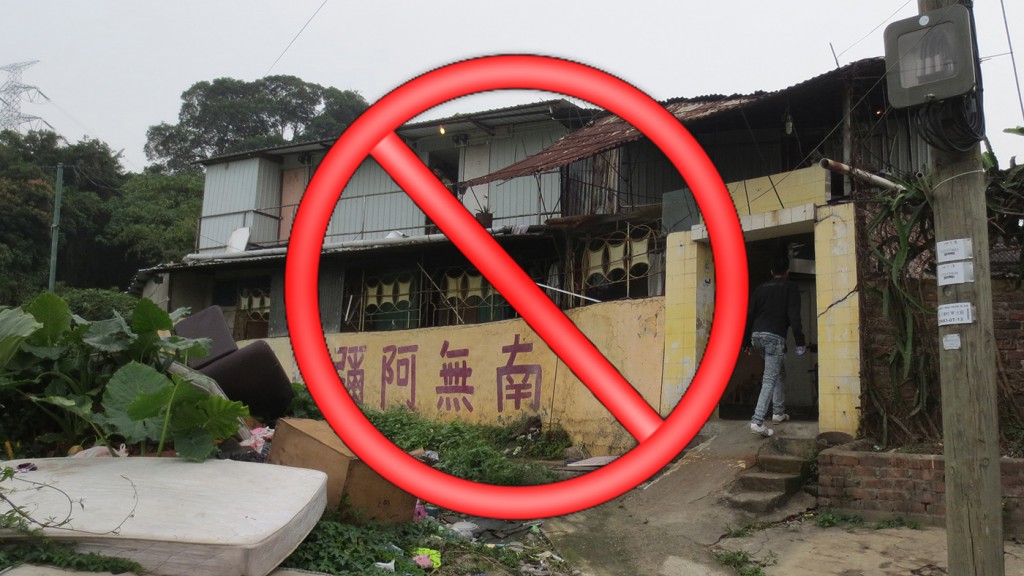
VF Report: The Slum in the Farmhouse closes down!
Dec 28th, 2014 | Advocacy, Housing, VF Report | Comment
Since 2010 Vision First visited regularly “The Slum in the Farmhouse”. Remember the purported landlady who boiled water on a fire for refugees to shower? On these visits we collected information and evidence from residents who at one point numbered 22 refugees, the overwhelming majority of whom were actively managed by ISS-HK through monthly “Agreements for provision of service” (including public rent paid with tax-dollars and home visits to approve allegedly unauthorized structures).
For two years Vision First steadfastly contended that it is wrong and immoral to subject refugees to degrading and dehumanizing living conditions. Such a contemptible practice is particularly scandalous since refugees are prohibited from working and thus cannot earn their way to better accommodation.
Vision First is pleased to report that finally something is changing!
ISS-HK seems to be reacting to the exposure of refugee slums. The Social Welfare Department contractor no longer approves certain slums as residence for refugees and advises tenants to look elsewhere for proper accommodation. Why? Is it an acknowledgement that something was improper?
While we can only speculate on ISS-HK’s decisions, we ponder why certain slums are going out of business. Do some slum lords feel pangs of guilt for exploiting refugees? Very unlikely. Is surgical enforcement action being taken by government departments to purge illegal structures only in a limited number of slums? Possibly. If information on these dreadful compounds is not readily available to these departments Vision First will ensure it will be.
Facts lead us to believe that cracks are appearing in the way refugees are segregated into slums. SWD helps us to form this opinion. In November 2014, the SWD announced a new tender dividing Hong Kong into three regions, introducing competition and launching food coupons to counter widespread irregularities in the food distribution channel.
Crucially, SWD replied to Vision First‘s questions on the tender by stressing that refugees need to be housed in legal structures. The closure of some slums (curiously not the worst structures) might indicate that Hong Kong government is no longer willing to tolerate irregularities in refugee welfare management that raised public queries and complaints.
A few months ago, refugees who lived in Slum No. 12, some for up to five years, started to report that their case workers at ISS-HK were unwilling to extend tenancy agreements in that compound. Tenants curiously admitted that “Mammy did not have the right documents” (as the slum lady was popularly called), confirming Vision First’s suspicions of irregularities.
Subsequently, expiring tenancy agreements at the Slum in the Farmhouse were not renewed and homeless refugees were not permitted to settle there. The number of ISS-HK clients in the compound steadily dwindled from almost twenty at the beginning of the year to just three in November 2014, evidence that the tide had turned.
This policy shift raises troubling questions. What will ISS-HK do with the refugees whose rooms are now been deemed improper? Does ISS-HK expect that these clients will relocated to other ‘acceptable’ slums? Isn’t this just shifting and confining vulnerable people from one dump to another?
When the last three leases will expire, the Slum in the Farmhouse will cease to exist and that is certainly a reason to celebrate. However, it seems that the plug was pulled because of reasons other than dangerous living conditions which might signify that SWD continues to support refugee slums.
VF’s original report on the Slum in the Farmhouse (4 Sep 2013)
